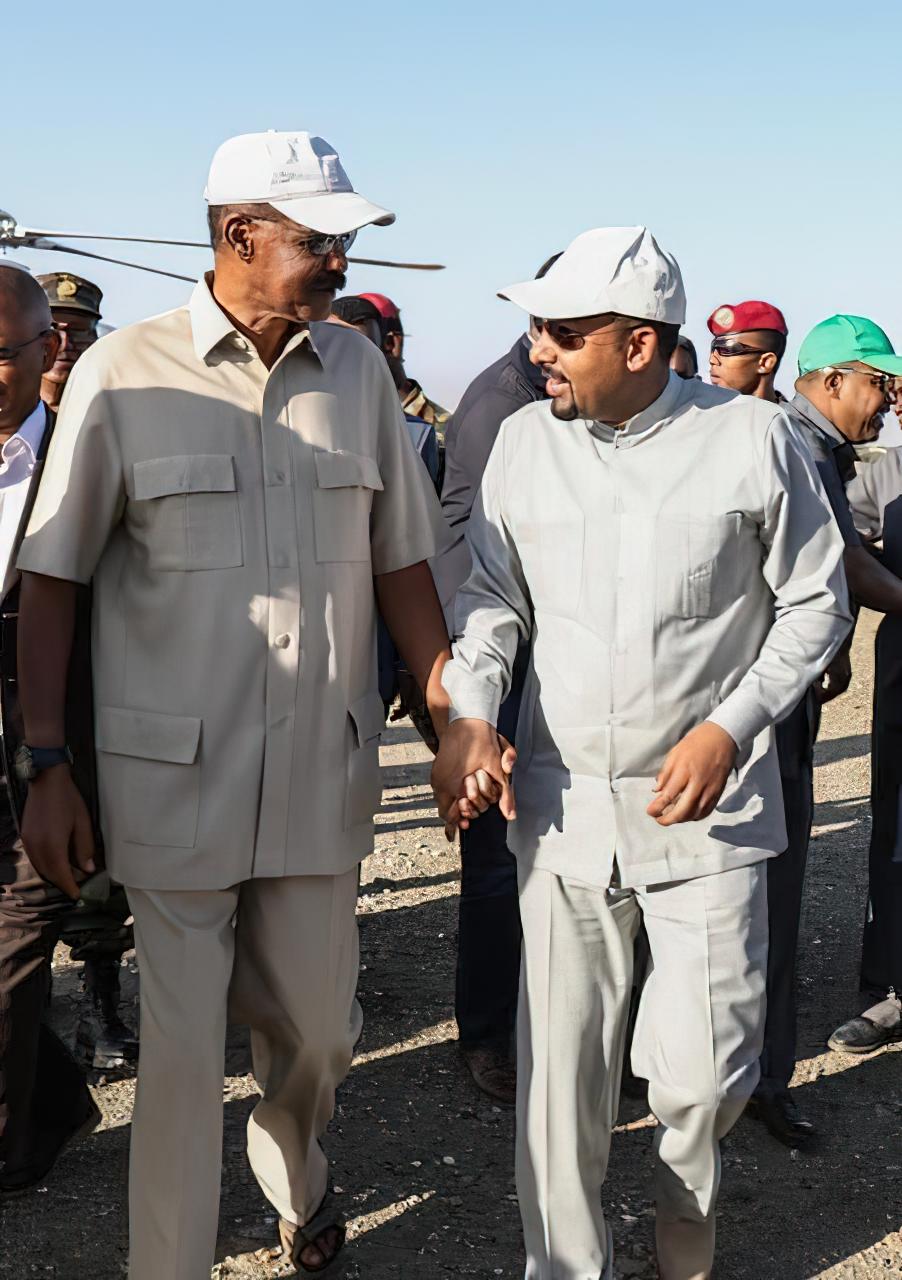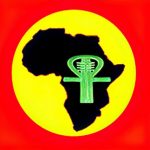Forum Replies Created
-
AuthorPosts
-
16th February 2021 at 8:40 pm in reply to: The war in Tigray is being complicated by ideological ambitions #870
The Church of Our Lady Mary of Zion, which reputedly houses the ark – a casket of gilded wood containing stone tablets inscribed with the Ten Commandments, according to the Bible – was the scene of a recent massacre of 750 people, reports filtering out of the country say.
By Harriet Sherwood
It has been hidden from view for thousands of years, and its whereabouts never proved. But if the Ark of the Covenant indeed rests in a chapel in northern Ethiopia, this extraordinary religious treasure could be at grave risk from fighting in the area.
International experts have raised the alarm over the security of the ark and other religious and cultural artefacts as a result of escalating conflict in the Tigray region of Ethiopia.
Among those voicing concern are academics from the Hiob Ludolf Centre for Ethiopian and Eritrean Studies at Hamburg University, who warn that Tigray’s rich cultural heritage is “highly endangered”. In an appeal, they say reports suggest “hostilities are taking place in close proximity to renowned cultural sites”.
They add: “There are reports of looting of manuscripts from Tigrayan churches and monasteries, and warnings that they will … be taken out of Ethiopia to be sold at antiquities markets in other countries.”
The conflict began in early November when Ethiopia’s Nobel peace prize-winning prime minister Abiy Ahmed sent federal forces to attack the Tigray People’s Liberation Front (TPLF), which ruled the country for almost three decades until 2018. Abiy has accused the TPLF, which has its own military, of seeking to destabilise Ethiopia and holding illegitimate elections. Troops from Eritrea, Ethiopia’s former enemy to the north, have crossed the border to fight alongside Abiy’s forces.
The Church of Our Lady Mary of Zion, in Aksum, said to be home to the Ark of the Covenant. Photograph: Neil McAllister/Alamy
Reliable reports of the fighting and its impact have been scarce due to a communications blackout and lack of humanitarian access, but the UN has warned of mass killings, the displacement of civilians and looting. More than 21,000 people have reportedly fled across the border to Sudan.Heritage experts readily acknowledge that the humanitarian crisis must take priority over protection of the country’s artefacts and antiquities. But, said Alison Phipps, professor of languages and intercultural studies at Glasgow University, “these are sacred sites and of incalculable value to the history of Christianity and its development in Ethiopia in particular.
“Attacks on cultural heritage are devastating in the context of war as they speak of the destruction of the soul of a people, of things which have endured through the ancestors.”
Catherine D’Andrea, director of the Eastern Tigray archaeological project at Simon Fraser University in British Columbia, Canada, said the region was “truly blessed with numerous and varied forms of tangible and intangible cultural patrimony”.
They include monumental architecture such as the Unesco world heritage site of Aksum, rock-hewn churches and remains of one of the earliest mosques in Africa, which are at high risk of damage, she said. “In addition, there are less visible cultural treasures, including manuscripts, paintings, oral traditions and artefacts held by churches and monasteries scattered throughout rural areas of Tigray. These tend not to be fully documented, so we can’t even begin to calculate the potential losses if destroyed or pillaged.”
Despite the absence of verifiable information, damage from the conflict to the recently reconstructed 7th-century mosque complex at Negash had been clearly documented, said D’Andrea. “It appears that the structure was shelled and images from within are suggestive of looting.”
At the Church of Our Lady Mary of Zion in Aksum, fleeing civilians have said the aim of the attack, in which hundreds of people hiding in the church were brought out and shot, was to remove the ark to Addis Ababa, according to Martin Plaut, a senior research fellow at the Institute of Commonwealth Studies.

The ancient Debre Damo monastery, which dates from the 6th century, is reported to have been attacked. Photograph: Tim Wege/Alamy
The ark is believed by Ethiopian Orthodox Christians to have been brought to Aksum by Menelik, the son of the Queen of Sheba and King Solomon of Israel, after Jerusalem was sacked in 586/587BC and Solomon’s temple destroyed. It has since been guarded by a succession of monks who are forbidden until death to leave the church grounds.As well as the potential threat to the ark, Eritrean troops were “looting everything they can get their hands on” in the region, Plaut told the Observer. “They’ve also gone through some monasteries and churches, taking Bibles and icons back across the border. It’s absolutely appalling.”
The monastery of Debre Damo, dating from the sixth century and containing painted ceilings and walls, is also reported to have been attacked.
Alessandro Bausi of the Hiob Ludolf Centre said he was “extremely concerned that unique artefacts will be destroyed or lost”. The centre is calling on Ethiopia’s state institutions to do “everything possible to protect the cultural property of Tigray”, and for warring parties “to abstain from attacking the cultural heritage and to respect the integrity of the places, both religious and secular, where this heritage is preserved”.
Ethiopia Autonomous Media
16th February 2021 at 8:24 pm in reply to: The war in Tigray is being complicated by ideological ambitions #869Debre Damo – one of Ethiopia’s most famous and ancient monasteries located in Tigray – reportedly bombed.

Ethiopia’s most famous monastery has been bombed and looted of its ancient treasures according to reports emerging from the north of the country where fighting has left tens of thousands of people at risk of starvation.
Aid organisations warned they are “preparing for the worst” after four months of conflict between state forces and regional fighters in Tigray that has killed thousands amid reports of multiple massacres. Authorities in the capital have confirmed the rapes of scores of women and girls.
International experts have also raised the alarm over reports of “cultural cleansing” in the heritage-rich region with thefts and destruction of centuries-old artefacts at historically significant sites.
Ethiopia Autonomous Media
16th February 2021 at 7:49 pm in reply to: The war in Tigray is being complicated by ideological ambitions #868Tigray president, Debretsion Gebremichael statement

My fellow Tigrayans at home and abroad:
Ladies and gentlemen, first and foremost, I feel greatly honoured to express my respect and appreciation to the people of Tigray from the heart of the battlefield in our defense against the invading forces.Ladies and gentlemen:
We are all aware that a genocidal war is being waged against the people of Tigray because they defied the fascistic decree of the clique led by Abiy Ahmed and held democratic elections as an expression of the right to self-administration, to ensure existence and security, for which the Tigrayan people have vigorously fought.People of Tigray: The enemy has invaded you to deprive you of the right to self-determination and self-rule, which you have bestowed upon yourselves through bitter armed struggle, and to exterminate you as a people by denying your identity and your right to life.
Since Tigray has been invaded by the allied forces of four governments and various regional militia forces, a power imbalance has been engendered between us and the enemy.
As has been already noted, one battalion of Tigray Defence Forces has been fighting against an entire army division of enemy forces, demonstrating extraordinary gallantry.
By making use of the additional capacity acquired from the Northern Command, we have inflicted heavy personnel, material, morale and other damages on the enemy.
Even so, however, due to the aforementioned power imbalance, the enemy has a temporary military superiority. We are working on finding ways to neutralise this advantage in our continued defensive efforts against the enemy.
Ladies and Gentlemen:
What is beyond the comprehension of those who think they can force the people of Tigray back — through harassment, looting or destruction of property — is that there is a fundamental asset inherent to the people of Tigray that they can not take away.The main asset of the people of Tigray is not their material riches; rather it is the inalienable capacity to think, innovate and change that of each and every Tigrayan. This capacity cannot be taken away by any enemy.
The people of Tigray believe in bringing about change not through invading and looting foreign places but through education, progressive thinking, and working day and night.
This capacity – this asset – is something that cannot be taken away by anyone. The lootings will only spurn the people to work even harder to restore what has been stolen in a very short time.
The soldiers and their commanders looting and destroying Tigray might at best succeed in instilling a sense of resentment in the people of Tigray but their stone-age thinking of using destruction to take Tigray back to the past is a day-dream.
Ladies and Gentlemen:
Some of the founders of the TPLF, who have led and fought for the last 46 years with an unwavering commitment to their principles, have recently been martyred. Others are still fighting, ready to make the same sacrifice.The martyrdom of these heroes does not discourage us in the slightest; to the contrary it only strengthens our resolve to keep fighting.
They are fortunate to have given up their lives in defense of their principles and their people and it gives us a great sense of honour to have witnessed that. To have been a loyal servant of their people for all these years is a great honour not everyone is lucky enough to experience. Therefore, in the aftermath of the martyrdom of our leaders, our young people are flooding to the battlefields in the thousands, full of purpose and valour to follow in their footsteps.
Respected people of Tigray:
The fascist clique of Abiy Ahmed, the dictatorship of the EPLF and various chauvinist forces have joined forces to commit unspeakable crimes against the people of Tigray, with the intention of exterminating the people.Villages and towns of Tigray are being relentlessly shelled with heavy artillery.
All the properties and assets you have accumulated over the last 30 years through your hard work are being destroyed and looted.
Your children are being hunted down and murdered for no reason. They are murdering those they can murder; exacting pain against whomever they can exact pain; and starving the rest to death by burning crops and properties, not sparing even animal food. And to make sure that those who become ill as a result of the pain and hunger don’t get medicine, they are looting all medical supplies in Tigray, and burning down whatever else remains. It’s a full-fledged attempt to force people to die from lack of medicine.
I call upon the people to unite and overcome against the enemy forces, leaving aside other differences, realising that every day the enemy forces stay in Tigray is an opportunity for them to cause more damage and injustice against the people.
Honourable farmers of Tigray:
Our enemy is trying to subjugate you by committing unspeakable crimes against you. However, you have been exhibiting great perseverance in the face of grave injustice and are registering significant and historical victories with your firm defense against the enemy. You are demonstrating that you don’t waver from your fight in the face of the enemy’s endless cruelty and all the injustice that is being unleashed against you. You are sending your children to the battlefields to fight against the enemy. True to the old mantra “weapons from our enemy; morale and food from our people,” you are feeding and taking care of our combatants. Your unique contribution will always have a special place in our long history of struggle against enemies, and as has always been said by yourself, you have made your village a fortress. I would like to reassure you that we will continue our fight with more determination until victory is guaranteed.Honourable Tigrayans Residing in the Towns and Cities of Tigray and Ethiopia:
Notwithstanding the various crimes being committed against you by enemy forces and the attendant psychological trauma, you have taken the enemy and its agents in stride without flinching even though you are forced to live in their midst. This is something to be proud of. You are conducting a principled struggle by speaking up in gatherings organized by our enemies. We can only say well done! You are reaffirming that the people of Tigray do not hold their head down in the face of an enemy but rather fight for what they believe, come what may, including death.Respected elders, young people, women, intellectuals, public servants, merchants and all others in different walks of life: I call upon you to continue your fight until our enemies are swept away.
Honourable members of the Tigray Defence Forces:
Whether it is our enemies or the invaders, they have come together and they are using everything they have to wipe us out of existence and consign us to the dustbin of history. Even though they have caused an unimaginable amount of injustice and damage up until now, we are proud of the fight you are putting up alongside your people and the legitimate government of Tigray. There is no doubt that you will continue to discharge the oath you have taken to your people and the legitimate government until we fully guarantee our right to self-determination.Honourable young people of Tigray:
In order to wipe the people of Tigray off the face of earth, the enemy and the invaders are mercilessly murdering the next generation of Tigray. in an attempt to deprive Tigray of its brightest. The enemy is killing young people one by one. You have been uprooted from your homes and condemned to the wilderness. You have been forced out of your schools and plunged into darkness. Allowing the enemy to stay in Tigray would mean not only that the enemy would unleash more misery and injustice against the youth but also that the future and existence of Tigray is dark. Realizing this, you have been fighting under the umbrella of “digital weyane” and we are very proud.Honoured women of Tigray
The crimes that are being committed against our women as part of the invasion by the fascistic clique of Abiy Ahmed, EPLF and allied chauvinistic forces to exterminate Tigrayans, is extraordinarily difficult to hear about, never mind to speak about. However, it is important to expose these crimes. Extremely ugly acts of individual and gang rape, by enemy forces arebecoming prevalent. Mothers and their daughters are being raped together. Your beloved children are falling prey to the enemy’s bullet. Your properties and possessions are being destroyed and ruined. Because each day the enemy stays in Tigray is an opportunity for the enemy to inflict more pain and suffering against women, I call upon you to organise and fight; make your villages and towns a living hell to the enemy; encourage all capable people to march to the battlefields.Honourable Tigrayans in the diaspora:
Having fully understood the coordinated and concerted effort by the enemy forces to commit genocide against Tigrayans, you have taken up the role of being voices and ambassadors of your people. We are very proud of that. The struggle has only just begun and will continue until the right of the people to self-determination has been fully guaranteed.I call on you to continue discharging your historical duty of exposing the atrocities of the regime to the international community and to persevere in your coordinated struggle through your time, knowledge and money.
Honourable members of the international community:
The fascist regime of Abiy Ahmed has co-opted Eritrean troops and other foreign powers to exterminate the people of Tigray. They have set out to exterminate Tigrayans by any means necessary – including bullets and manufactured starvation – and are striving day and night to realize that dream. Tigrayans are being mercilessly murdered only because they are Tigrayans. Tigrayan women are being gruesomely raped. Human and democrative rights of the people of Tigray have been totally suspended. The villages, towns, and cities of Tigray are being wantonly shelled with heavy weaponry. Places of worship are being bombarded and desecrated. Historical artifacts and places are being destroyed. Millions of people have been uprooted and subjected to economic and social hardships. Domestic animals have been left without food and a place to stay. In summary, the enemy has unleashed a clearly genocidal war against the people of Tigray. This is a punishment meted out against the people because they elected their leaders in defiance of the regime’s decree to cancel elections indefinitely. I call upon the international community to strongly condemn the genocidal war; to investigate all the crimes that have been committed; to take all possible measures against the invading forces; and, especially, to bring the main culprits of the war – Isaias Afwerki and Abiy Ahmed – to the international court.
Ladies and gentlemen:
Past generations of Tigrayans did not defeat past invaders because of their military might or their arsenal of modern weaponry. Rather, it is because they refused to compromise on their rights and succumb to the enemy’s demands. They faced off enemies safe in the knowledge that they were equipped with a just cause and a sense of purpose. We, in turn, ought to face the enemy with a similar sense of purpose. It is incumbent upon us to honour the dignity and history of the children of Tigray by defeating the enemy by uniting around our purpose and beliefs. We might face problems, ups and downs, but we have to strengthen our capacity to face and defeat any enemy to honour our dignity and ensure our right to self-determination.Ladies and gentlemen:
The enemy has been shocked by our capability to defend ourselves. As a result, the enemy is bombing and invading Tigray afresh, using everything at its disposal. However, we will inevitably destroy the enemy and win. The enemy had better learn from the history of other invaders throughout the world that it is wise to pack up and leave. We would like our enemies and our friends to know that we cannot leave because this is our home and we have nowhere else to go. So, we are not going to flinch from our struggle until we have won. Victory is in our hands.Victory to the people of Tigray and death to the enemies of Tigray.
I thank you
Ethiopia Autonomous Media
Humanitarian needs in Tigray are overwhelming. We urge all parties involved in the fighting to protect the civilian population, to respect health care staff and infrastructure, and to grant access to humanitarian organizations.

ICRC Africa should not shy away to mention exclusively the parties engaged in obstruction of the humanitarian aid. Especially Eritrea’s forces should be mentioned by name. Ethiopia’s and Amhara’s forces are also involved .
Ethiopia Autonomous Media
10th February 2021 at 9:14 pm in reply to: The war in Tigray is being complicated by ideological ambitions #825Ethiopia is moving in a totalitarian direction. No dissent is tolerated & government now expects complete subservience.
 This is Meseret Dhaba, and was arrested this morning. Apparently, her crime was to express solidarity with Oromo political prisoners on hunger strike protesting unjust detention.
This is Meseret Dhaba, and was arrested this morning. Apparently, her crime was to express solidarity with Oromo political prisoners on hunger strike protesting unjust detention.Ethiopia Autonomous Media
The current aid reporter in Ethiopia was attacked and beaten down in his own home on Monday morning. Three armed men broke into the residence Lucy Kassa rents in the capital Addis Ababa.

The attackers took her PC with them and threatened to kill her if she continued to write about the situation in the war-torn Tigray region.
By Gunnar Zachrisen
They came today while I was at home. Three unknown men knocked on my door, and when I opened they came in and beat me down, Kassa says in an e-mail that was sent a few minutes after the dramatic incident.
Lucy Kassa has been Bistandsaktuellt’s correspondent in the country for two years, and has written a number of articles on the political development in the time before and after the Peace Prize to the country’s Prime Minister Abyi Ahmed.
From individuals in the Ethiopian exile community in Norway, she has occasionally received criticism both for being too critical of the government and too critical of the “old regime” which was dominated by people from the Tigray People’s Liberation Front.
Prime Minister Abyi Ahmed’s government and the TPLF are today the two opposites of the Tigray Civil War. It was government forces and TPLF forces that went to war against each other in November last year, after several months of hateful outbursts and growing tension.
Since then, there have been a number of reports that Ethiopian government forces have received extensive assistance from military forces from neighbouring Eritrea. However, spokesmen for the Ethiopian government have refused to give any official confirmation that the former enemy Eritrea is now an ally of the Ethiopian government forces.
Armed, but in civilian clothes
The 29-year-old journalist, who is originally from the Tigray region, says that the attackers came in civilian clothes, but were armed. They did not present themselves and did not show any kind of identification.– They searched the home without having any search order. They threatened to kill me for writing bad stories about Tigray, says Kassa who is unmarried and lives alone.
She says the attackers spoke the local Amharic language. They questioned her about her relationship with the “TPLF junta” and criticized her for spreading lies. – I told them I had nothing to do with TPLF, but they continued to harass me because of my ethnic background. I do not know what they were looking for, but they made a lot of mess in the house. Before they left, they warned me: “Next time we will take you harder.”
Kassa has previously explained that in the shadow of the civil war in Tigray, there is a hateful and tense atmosphere in the Ethiopian capital and that it is especially aimed at people with a Tigray background.
She says she is too scared to inform the police or talk to a lawyer about the attack on her. On the other hand, she believes that international press coverage can be her best life insurance in the current situation, so that those behind it do not dare to attack her again.
Obtained material on controversial topic
Kassa, who has a law degree, started her journalistic career working for an English-language magazine six years ago. Since then, she has worked for several international media, including Al Jazeera, and she has worked on documentaries.For the past couple of weeks, she has been working on gathering information for an article about the situation in Tigray for the American newspaper Los Angeles Times. She sent the article on Saturday, but was in the process of further investigations into the case.
– Pictures I had obtained were from the villages of Fiya K’eshi, Sebya, Kerestber and other small villages on the outskirts of the town of Adigrat, on the way to Zalambessa. There are many Eritrean soldiers there. They live in old, abandoned camps. Others have taken over schools and houses belonging to local farmers. It is in these villages where women are abducted and subjected to gang rape.
The article for the Los Angeles Times mentioned an incident in which a local village woman had been detained for a couple of weeks and repeatedly raped by several Eritrean soldiers. Other women in local villages have also been abducted, according to Kassa.
– I also planned to go to Tigray to investigate allegations of hunger and find out even more about the Eritreans’ behaviour in the area, the young journalist says.
Tronvoll: – Very worrying
One of the world’s leading experts on Ethiopia, Professor Kjetil Tronvoll, is seriously concerned about the freedom of the press in the country.– When Abiy Ahmed took over in 2018, he was praised for releasing all journalists who were imprisoned and opened up for freedom of expression and the press. Already in 2019, a more restrictive line was seen against freedom of expression when new criticism was leveled against the Prime Minister. But especially since the summer of 2020 and the unrest in the Oromia region, and not least since the war against Tigray started in November, freedom of the press and expression has been severely restricted. Several journalists have now been arrested again in the country, Tronvoll says.
He himself knows many Ethiopian journalists and editors who admit that they exercise a high degree of self-censorship, in order to avoid getting into trouble or being arrested.
– It is not possible to talk about positive liberal “reforms” in Ethiopia, as many did when the Peace Prize was announced. They no longer exist, says Tronvoll.
The Norwegian professor is himself incited by Ethiopian authorities and has on several occasions been threatened with death by Ethiopians in exile. The heat has increased since the war in Tigray started in November last year.
The head of the Ethiopian intelligence service INSA, Shumete Gizaw, accused Tronvoll, among others, of being paid by TPLF to spread misinformation about the war in the Tigray region, writes NTB today.
The accusations, which Tronvoll firmly rejects, were disseminated by Ethiopia’s state news agency ENA and were quickly picked up by Ethiopians in exile, also in Norway. It triggered a flood of threats, including death threats, according to the Ethiopian researcher.
Tronvoll is a professor of peace and conflict studies at Bjørknes University College in Oslo and has been researching Ethiopia and Eritrea since the early 1990s.
 This is what it looked like after the three perpetrators had searched every closet and piece of furniture in the journalist Lucy Kassa’s apartment. They took with them a PC and pictures she was to use in her journalistic work.
This is what it looked like after the three perpetrators had searched every closet and piece of furniture in the journalist Lucy Kassa’s apartment. They took with them a PC and pictures she was to use in her journalistic work.Ethiopia Autonomous Media
President Sahle work of Ethiopia met strong criticism during her visit to Ayder hospital in Mekele & at her talks with elders there was a strong criticism over Eritrean solders women who lost everything told her her gift of sanitary pads was not acceptable!

What a sadist! She conspires to Tigray Genocide in the name of ‘law enforcement’ , gets them raped and after they are devastated she comes to give sanitary pads.
Ethiopia Autonomous Media
2nd February 2021 at 10:40 pm in reply to: The war in Tigray is being complicated by ideological ambitions #767“After several attempts, we finally entered the capital of Tigray, Mekele, with a first MSF team on 16 December, more than a month after the violence started. The city was quiet. There was electricity, but no basic supplies.
 The local hospital was running at 30 to 40 per cent, with very little medication. Most significantly, there were almost no patients, which is always a very bad sign. We evaluated the hospital, with the idea of referring patients there as soon as possible from Adigrat, 120 kilometres to the north.
The local hospital was running at 30 to 40 per cent, with very little medication. Most significantly, there were almost no patients, which is always a very bad sign. We evaluated the hospital, with the idea of referring patients there as soon as possible from Adigrat, 120 kilometres to the north.We arrived in Adigrat, the second most populous city in Tigray, on 19 December. The situation was very tense, and its hospital was in a terrible condition. Most of the health staff had left, there were hardly any medicines and there was no food, no water and no money. Some patients who had been admitted with trauma injuries were malnourished.
We supplied the hospital with medicines and bought emergency food in the markets that were still open. Together with the remaining hospital staff, we cleaned the building and organised the collection of waste. Little by little we rehabilitated the hospital so that it could function as another referral centre.
Albert Viñas, emergency coordinator, Tigray, Ethiopia “If hospitals don’t function properly and can’t be accessed, then people die at home. And when the health system is broken, vaccinations, disease detection and nutritional programmes don’t function either.”
On 27 December we entered Adwa and Axum, two towns to the west of Adigrat, in central Tigray. There we found a similar situation: no electricity and no water. All the medicines had been stolen from Adwa general hospital and the hospital furniture and equipment were broken. Fortunately, the Don Bosco institution in Adwa had converted its clinic into an emergency hospital with a small operating theatre. In Axum, the 200-bed university hospital had not been attacked, but it was operating at only 10 per cent capacity.On roads where the security situation remained uncertain, we trucked in food, medicines and oxygen to these hospitals and began to support the most essential medical departments, such as the operating theatres, maternity units and emergency rooms, and to refer critical cases.
Health centres looted and not functional
Beyond the hospitals, around 80 or 90 per cent of the health centres that we visited between Mekele and Axum were not functional, either due to a lack of staff or because they had suffered robberies. When the basic healthcare service does not exist, people can’t access or be referred to hospitals.Before the crisis, two appendicitis operations were performed on any single day at Adigrat hospital. In the past two months, they haven’t done a single one. In every place, we saw patients who had struggled to get to hospital. One woman had been in labour for seven days without being able to give birth. Her life was saved because we were able to transport her to Mekele. I saw people arrive at hospital on bicycles carrying a patient from 30 kilometres away. And those were the ones who managed to get to hospital…
If women with complicated deliveries, seriously ill patients and people with appendicitis and trauma injuries can’t get to hospital, you can imagine the consequences. There are large numbers of people suffering, surely with fatal consequences. Adigrat hospital has a catchment area of more than one million people and the one in Axum has more than three million.
If these hospitals don’t function properly and can’t be accessed, then people die at home. And when the health system is broken, vaccinations, disease detection and nutritional programmes don’t function either. There have been no vaccinations in almost three months, so we fear there will be epidemics soon.
In recent weeks, our mobile medical teams have started visiting areas outside the main cities and we are reopening some health centres. We have seen some health staff returning to work. Only five people attended the first meeting we organised in Adwa hospital, but the second was attended by 15, and more than 40 people came to the third.
 An MSF nurse and a translator prepare a donation of medical materials in Megab, south-west of Adigrat town, in the Tigray region of northern Ethiopia.
An MSF nurse and a translator prepare a donation of medical materials in Megab, south-west of Adigrat town, in the Tigray region of northern Ethiopia.
María Hernández/MSF
Fear, queues and lack of basic services
In this part of Tigray, there are no large settlements of displaced people – instead, most have taken refuge in the houses of relatives and friends, so many houses now have 20 or 25 people living there together. The impact of the violence is visible in the buildings and in the cars with bullet holes.Especially at the beginning, we saw people locked in their homes and living in great fear. Everyone gave us pieces of paper with phone numbers written on them and asked us to convey messages to their families. People don’t even know if their relatives and loved ones are okay, because in many places there are still no telephones or telecommunications.
When we arrived in Adigrat, we saw queues of 500 people next to a water truck waiting to get 20 litres of water per family at most. The telephone line was restored in Adigrat just a few days ago. The situation is improving little by little, but as we moved westwards to new places, we found the same scenario: fewer services, less transport…
We are very concerned about what may be happening in rural areas. We still haven’t been able to go to many places, because access is still difficult, either because of insecurity or because it is hard to obtain authorisation. But we know, because community elders and traditional authorities have told us, that the situation in these places is very bad.
Large areas of Tigray have a very mountainous terrain, with winding roads that climb from 2,000 metres above sea level to 3,000 metres. Cities like Adwa and Axum are built on the fertile highlands, but large numbers of people live in the mountains and we have heard that there are people who have fled to these more remote areas because of the violence.
Logistical challenges, late response
The effort of our teams has been huge at all levels – medical, financial, logistical and human resources. It’s an incredible challenge without telephone or internet. At first there were no flights to Mekele and we had to move everything by road from the Ethiopian capital, Addis Ababa, about 1,000 kilometres away. You couldn’t make money transfers because the banks were all closed. Yet we managed to start our operations.Now, almost three months after the start of the conflict, other organisations are beginning to appear, little by little, in some areas. I am struck by how difficult it has been – and continues to be – to access people in great need in such a densely populated area. Considering the means and capacity for analysis possessed by international organisations and the UN, the fact that this is happening is a failure of the humanitarian world.
We still don’t know the real impact of this crisis, but we have to keep working to find it out as soon as possible.”
Other MSF teams are also currently delivering medical care in different areas of central, south and north-west Tigray. As well as its activities in Tigray, MSF teams have provided healthcare to thousands of displaced people and supported health facilities at the border of Amhara region and are responding to the needs of Ethiopian refugees across the border in Sudan.Ethiopia Autonomous Media
Oromia Tourism Commission (OTC) and the Cooperative Bank of Oromia S.C (COOP) vow to transform the tourism sector.

The two institutions have entered into a strategic cooperative agreement having identified a number of collaborating areas. In a discussion held among both institutions, it has been pin pointed that the financial and tourism sectors are mutually exclusive institutions for each other’s development which in turn contributes to the national growth.
During the MoU signing session, Commissioner of the Oromia Tourism Commission, Aadde Lelise Dhugaa said that the Commission’s work could be unthinkable without financial institutions involvement. Lelise mentioned that Oromia is endowed with various natural and cultural heritages including those that have been listed among UNESCO world heritages. However, said Lelise, it is regrettable that the Region has not benefited from these resources due to failure to develop them well and ensure beneficial ownership.
The Commission is now working to develop destinations and ensure community based and youth led tourism. To this end, we are working towards creating 500,000 tourism related jobs in the next five years, she said. Given the paramount significance of the banking sector in transforming the tourism and hospitality industry, it is a significant step establishing strategic partnership with Cooperative Bank of Oromia. Therefore, the Commission appreciates the Bank’s willingness to collaborate on a long term venture, Lelise said.
Both institutions also agreed on capacity building programs to ensure transformative services rendered by both sectors. To this end, technological development has been identified one of the critical areas of focus.
President of Oromia Cooperative Bank, Obbo Deribie Asfaw added that Coop Bank is willing to deploy its resources to benefit the youth through provision of equitable financial services and tourism products.Ethiopia Autonomous Media
President of Oromia regional state Shimelis Abdisa & deputy President of Somali regional state Mustefa Omer signed a five year memorandum of Understanding (MoU) to cooperate in peace & development activities.

The MoU lays out joint activities promoting peace & development in 12 zones & 48 woredas between the two regional state at a cost of 222.7 million birr.
The MoU was signed at the end of a day long join peace talk which took place yesterday in Addis Ababa.Ethiopia Autonomous Media
The four TPLF’s defense forces who recently gave their hands to the former military generals and officials have arrived in Addis Ababa.

Major General Mohammed Esha and Brigadier General Mulugeta Berhe
The four former generals and officials who arrived in Addis Ababa are Major General Mohammed and Brigadier General Mulugeta Berhe, Colonel Gebrewashid Hailu and Colonel Gebrehekel.
TPLF’s sanction group has been declared to be attacked by the northern defence forces and after that they were defending the defense force.
At last, when the team’s existence is not able to stand the attack, they are forced to give up their hands to the defense force.
Today, the defense force members have handed the military generals to Addis Ababa to the federal police.Ethiopia Autonomous Media
Tigrayans and friends of Tigray held a global solidarity demonstration against the invaders of Ethiopia and Eritrea.
 ዓለም ለኽ ሰላማዊ ሰልፍ ትግራይ ብድሙቕ ኩነታት ኣብ መላእ ዓለም ተኻይዱ
ዓለም ለኽ ሰላማዊ ሰልፍ ትግራይ ብድሙቕ ኩነታት ኣብ መላእ ዓለም ተኻይዱ
Tigray may be small to the rest of the world, but to us Tigray is the world.

Global protests!! PERTH for Tigray!!



 I stand with Tigray! Stop War On Tigray! Stop Tigray Genocide! Las Vegas
I stand with Tigray! Stop War On Tigray! Stop Tigray Genocide! Las Vegas Tigray was already vulnerable to famine due to the desert locust invasion and now approximately 5 million Tegaru are on the verge of experiencing man-made famine due to Abiy Ahmed Ali
Tigray was already vulnerable to famine due to the desert locust invasion and now approximately 5 million Tegaru are on the verge of experiencing man-made famine due to Abiy Ahmed Ali
& Isaias Afwerki’s invasion.

 Protests happening through out the world. Justice for Tigray.
Protests happening through out the world. Justice for Tigray.Ethiopia Autonomous Media
Reports this week of a senior Ethiopian military official’s comments that security forces from neighbouring Eritrea entered the fray in the northern Tigray region backed what U.S. officials and outside observers have been saying for weeks based on satellite evidence.

“The truth of the matter is that many of us knew from day one the involvement of Eritrea. And the involvement of Eritrea was not a unilateral involvement,” said Awet Weldemichael, a professor of history and global development studies at Queen’s University in Kingston, Ontario, Canada.
“This looks systematic,” Weldemichael told the media, contradicting the Ethiopian government’s stance that Eritrean troops entered the region without an invitation. “The federal government in Addis Ababa seems to be trying to find ways to ease the pressure on itself. None of this massive involvement can happen without proper planning, coordination. And that happens with an open invitation — not only the invitation, but active collaboration staged by the prime minister of Ethiopia and the president of Eritrea, then carried out by their respective senior-most generals.”
Since the conflict in northern Ethiopia began in November, the federal government and the Eritrean government have denied that Eritrean troops were operating on Ethiopian soil.
Major General Belay Seyoum, the leader of the Northern Command of Ethiopia’s National Defense Force, contradicted that stance during a town hall meeting in the Tigray region’s capital, Mekelle, in December. His comments and a video of him speaking at the town hall surfaced earlier on social media and then were published Wednesday in the Addis Standard, a weekly independent magazine, and picked up by international wire services.
“The main mission of the defense force is to protect the sovereignty of the country,” Seyoum said. But he said it is important to understand who crossed the border and killed the troops protecting that border. “A foreign army that is unwanted entered,” he said.
“This is our country,” he said in the video. “My conscience doesn’t allow me to ask for the Eritrean army’s help. This is our internal problem, and we can solve it ourselves. And we don’t have a capacity problem.”
The new Mekelle city mayor with the Tigray Provisional Administration, Ataklti Hailesilassie, also referenced the presence of Eritrean troops.
“We were told word for word that they were working to withdraw them in a short period of time,” he told residents, speaking in Tigrigna. He later said he was repeating what the general said about Eritrean troops when asked to clarify if the discussion was about the Amhara militia or other military personnel who entered the Tigray region during what Prime Minister Abiy Ahmed termed a law enforcement operation.
Accusations of attacks on refugees
Amid the conflict, Eritrean armed forces have been accused by international observers of attacking and abducting Eritrean refugees who live in Tigray. About 96,000 Eritrean refugees live in the region after fleeing their home country.
U.S. Senators Cory Booker of New Jersey and Todd Young of Indiana demanded an end to this activity in a joint statement.
“We are deeply concerned by reports of Eritrean refugees in Tigray being killed, abducted and forcibly returned to Eritrea by Eritrean forces, as well as disturbing reports that some trying to reach safer areas are being prevented from leaving,” the statement said.
Early reports of Eritrean troops on the ground included those from diplomats who cited satellite evidence, intercepted communications and anecdotal reports. Later, a U.S. State Department spokesperson who was asked to verify claims said, “We are aware of credible reports of Eritrean military involvement in Tigray and view this as a grave development.
“We urge that any such troops be withdrawn immediately. We are also aware of reports of human rights violations and abuses in the region. All parties must respect human rights and international humanitarian law.
Rights Groups Sound Alarm Over Safety of Eritrean Refugees in Ethiopia
Reports emerge of Eritrean refugees in Tigray being attacked, abducted and returned to their home country in violation of international law
“We and other international partners continue to urge an independent investigation of the reports and accountability for those found responsible,” the spokesman in an email response. “We continue to urge all parties to restore peace, protect civilians — including refugees — and allow unhindered humanitarian access in Tigray.”Awet told us the cooperation between Eritrean and Ethiopian forces took several forms.
Ethiopia flew soldiers and materiel to Eritrean airfields and then re-entered the country by crossing Ethiopia’s northern border, he said. Early in the conflict, Ethiopian soldiers fled to Eritrea, where they were allowed to reassemble and return to the conflict to launch counterattacks, according to Awet.
Eritrea also offered intelligence and heavy artillery support to Ethiopian forces attacking the TPLF from the north, he said.
Ethiopia Autonomous Media
-
AuthorPosts


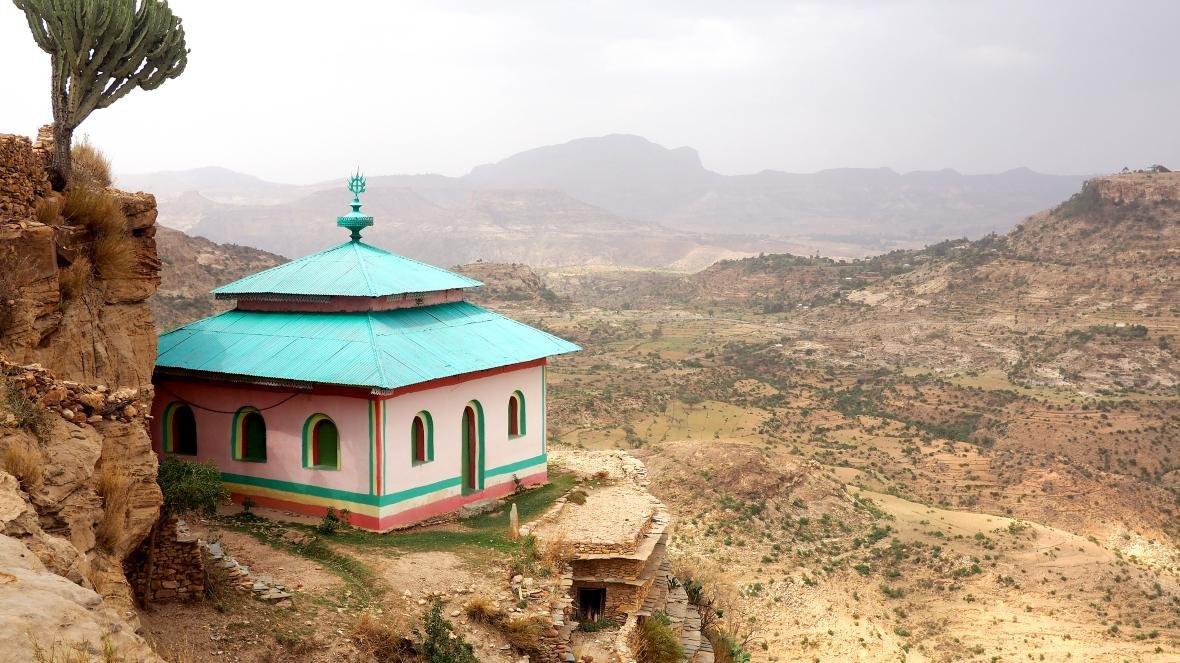
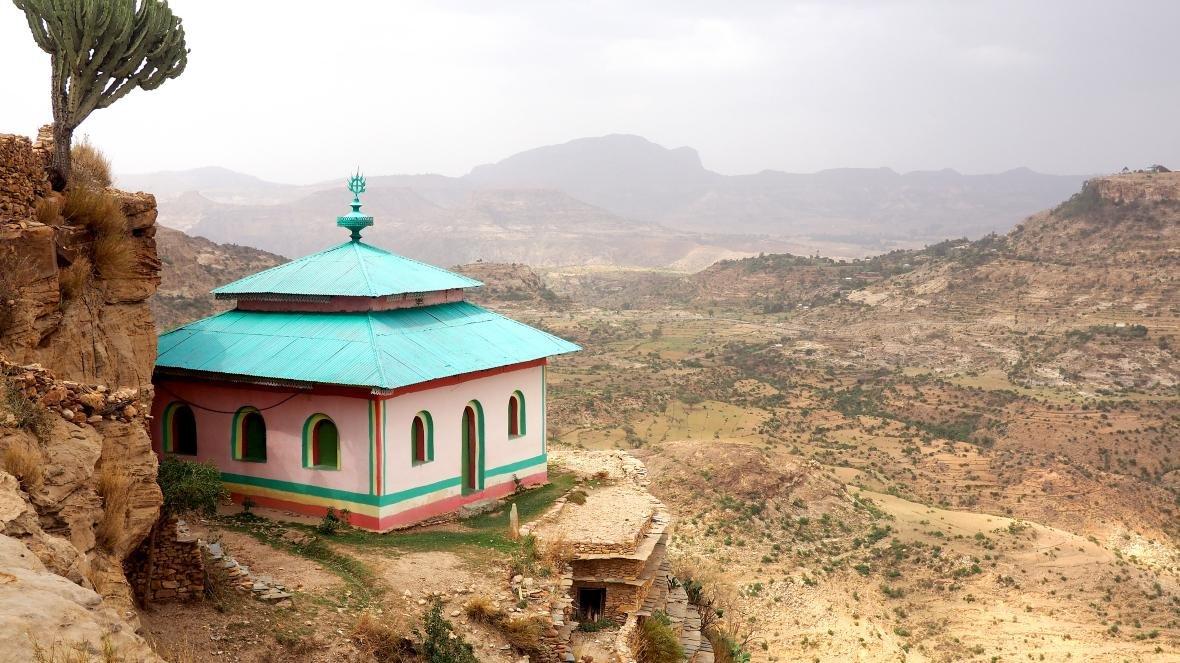
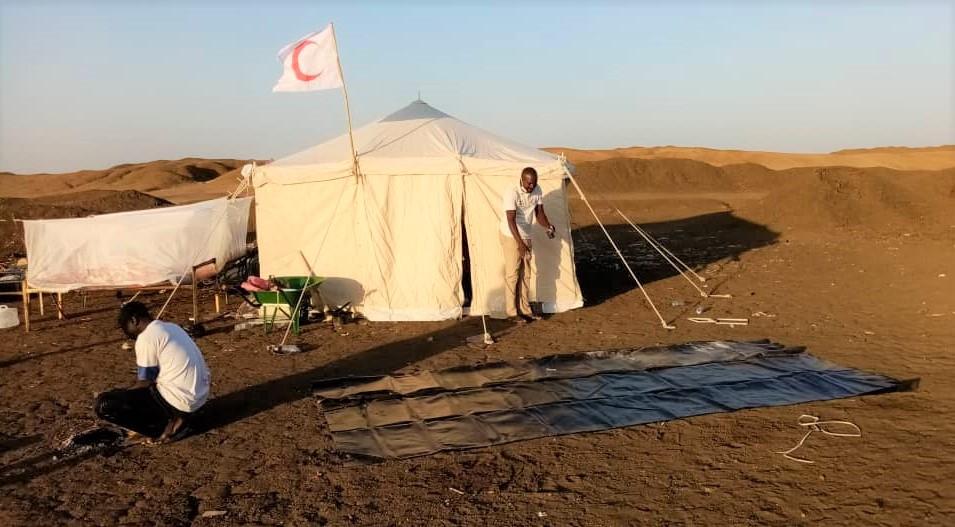
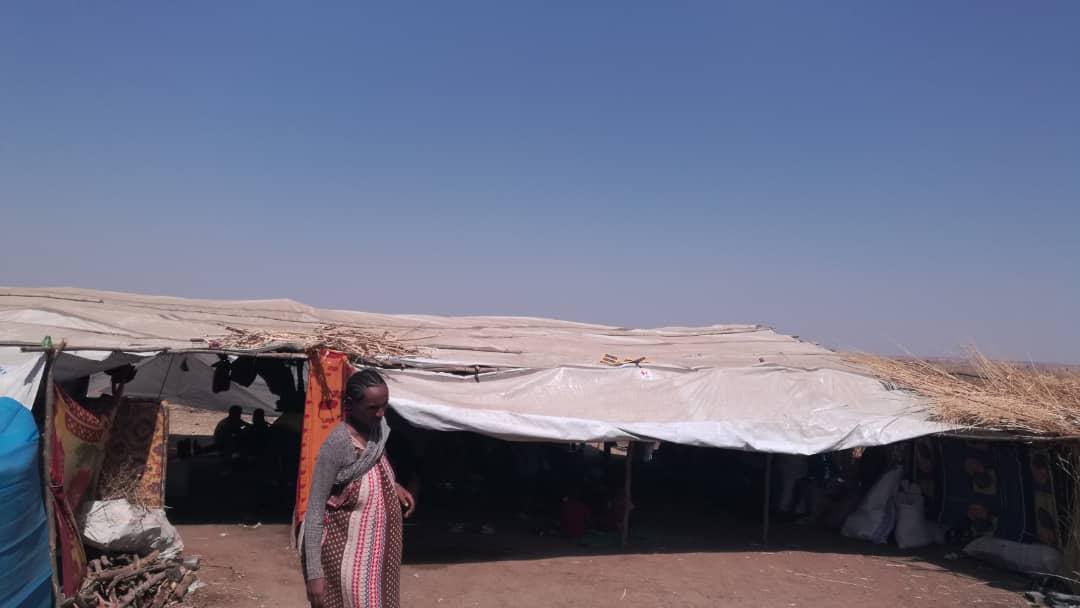
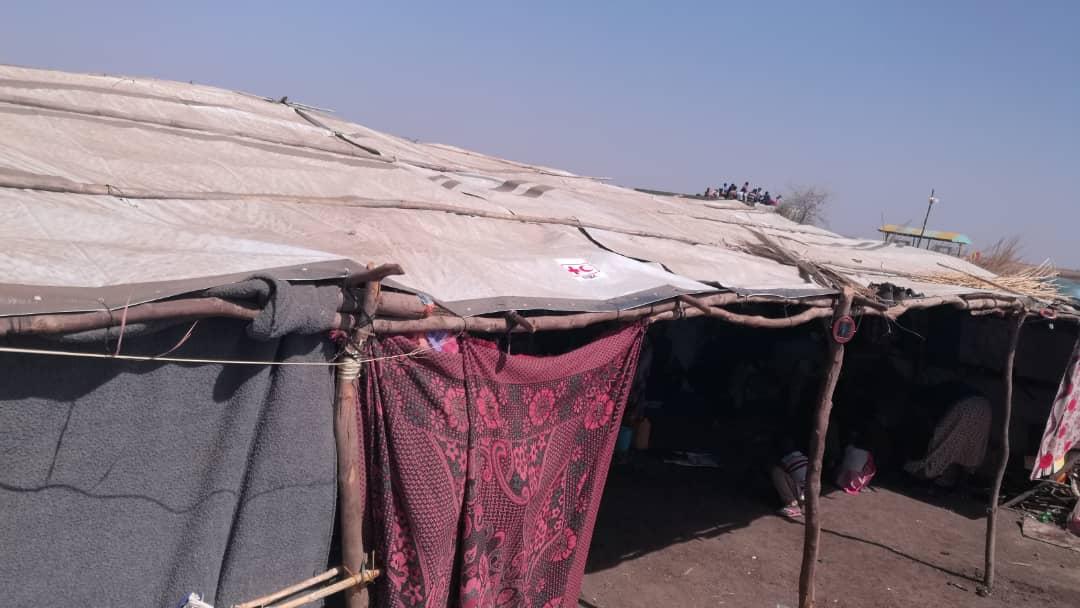 Sudanese Red Crescent teams are actively working to maintain hygiene among the many Ethiopian refugees living here.
Sudanese Red Crescent teams are actively working to maintain hygiene among the many Ethiopian refugees living here.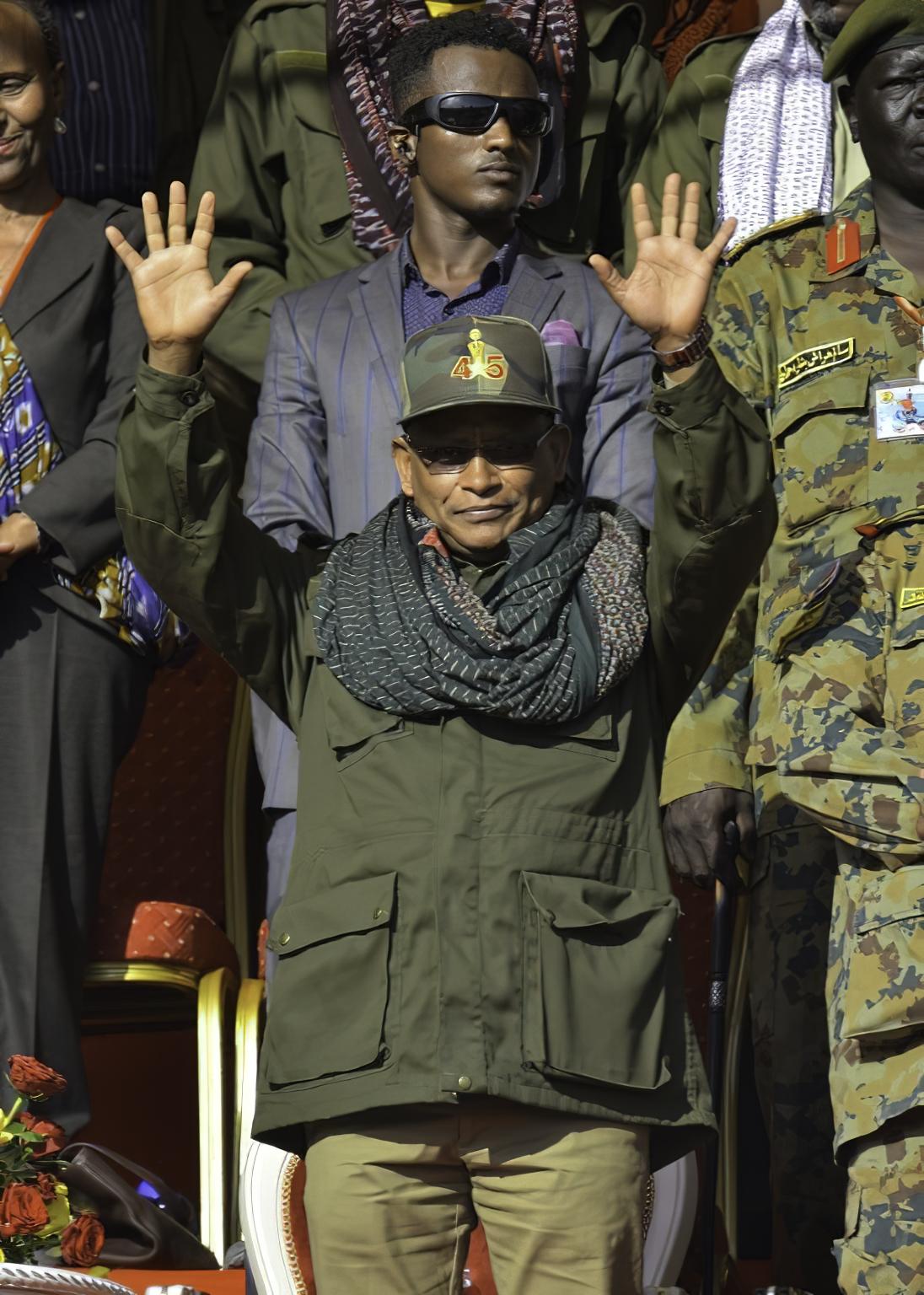
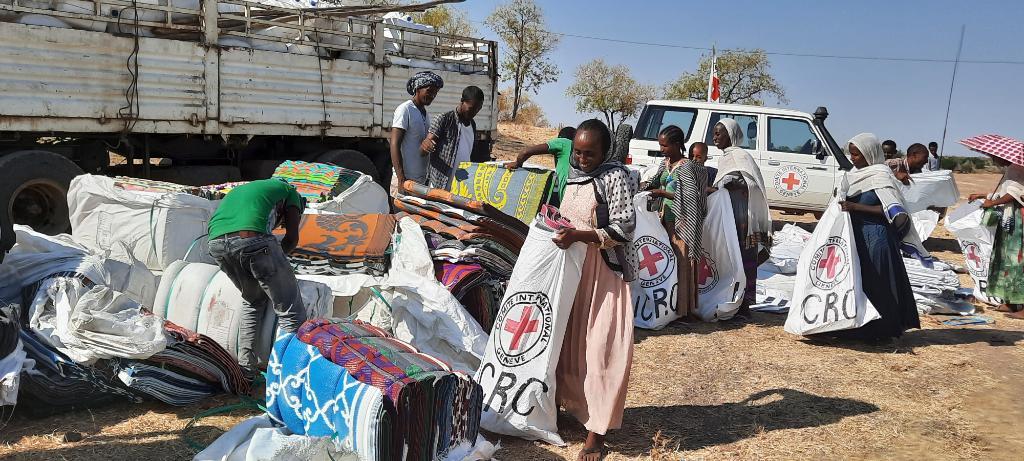
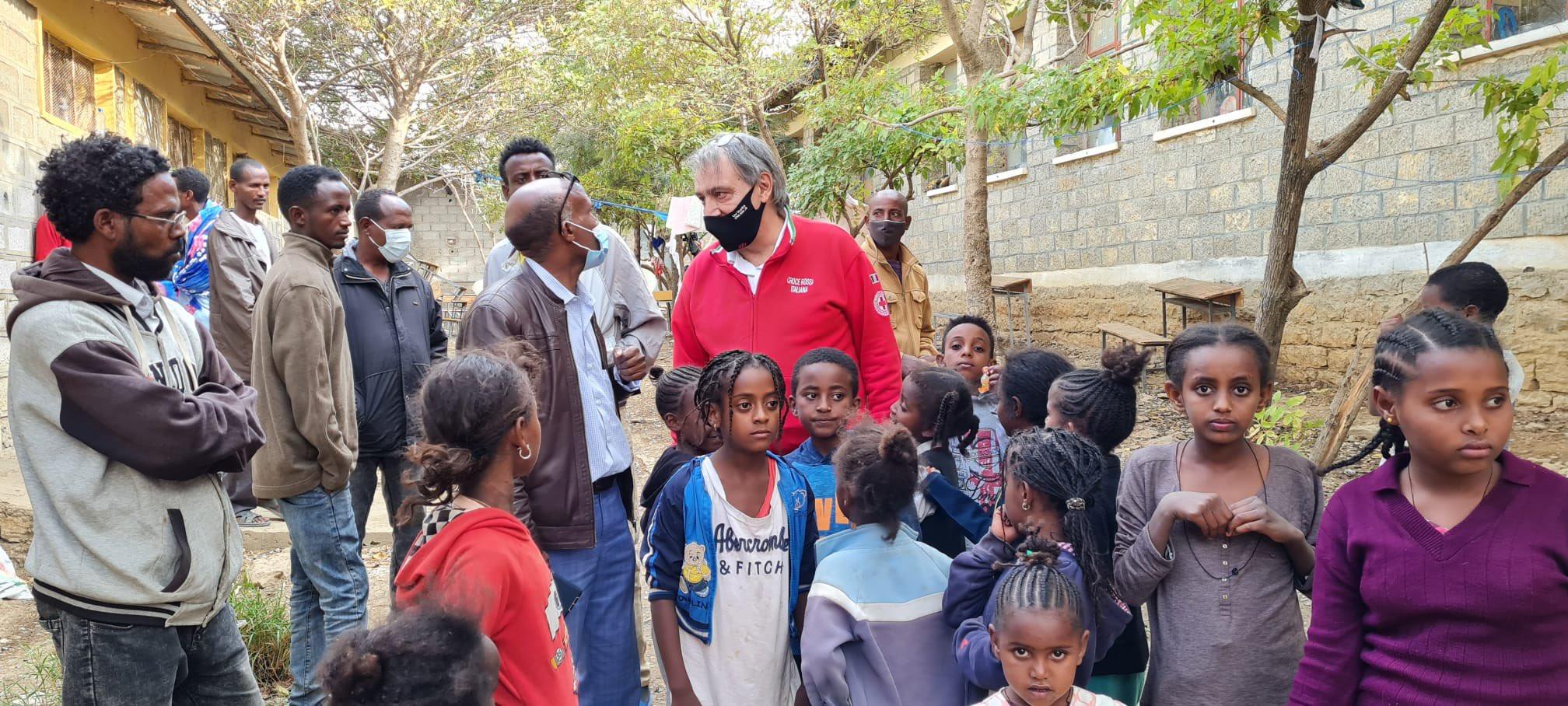
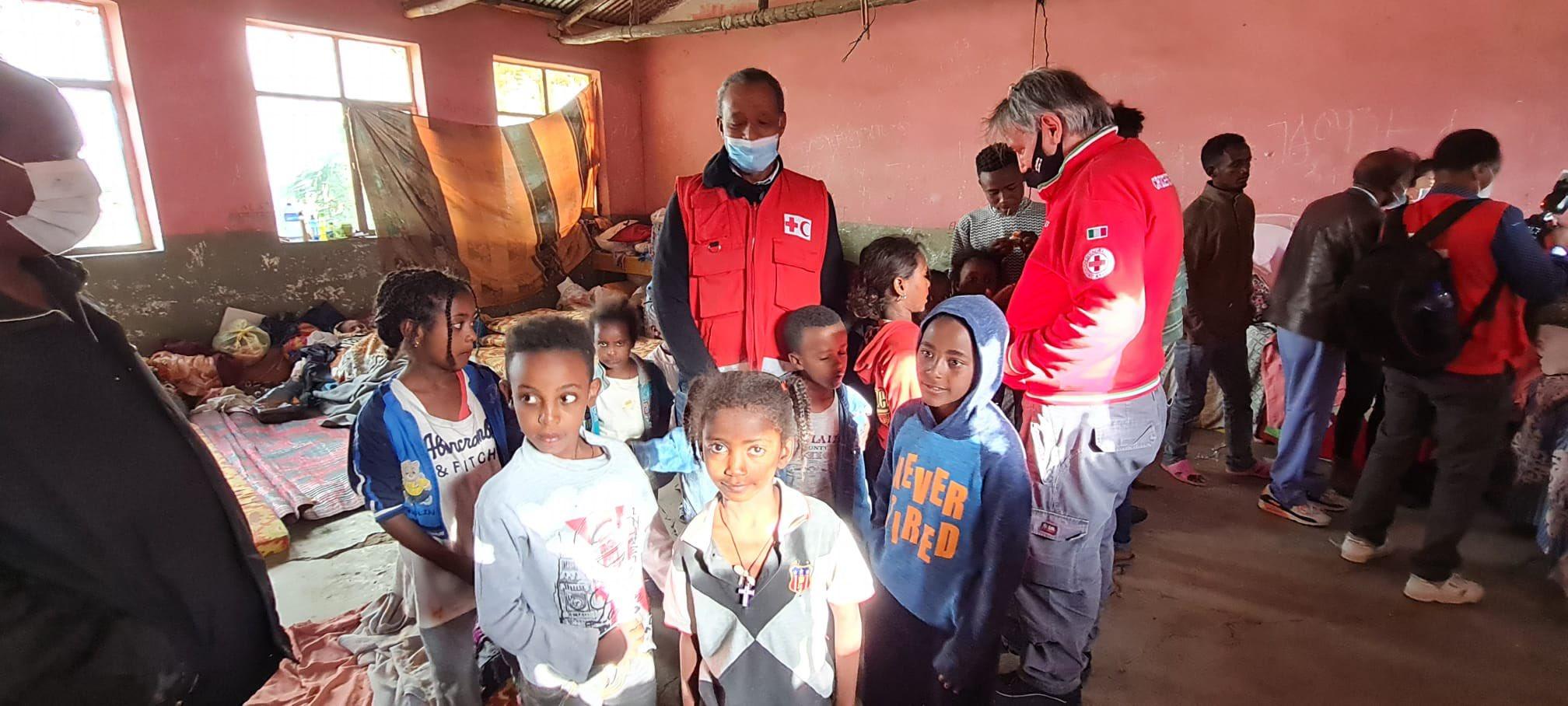
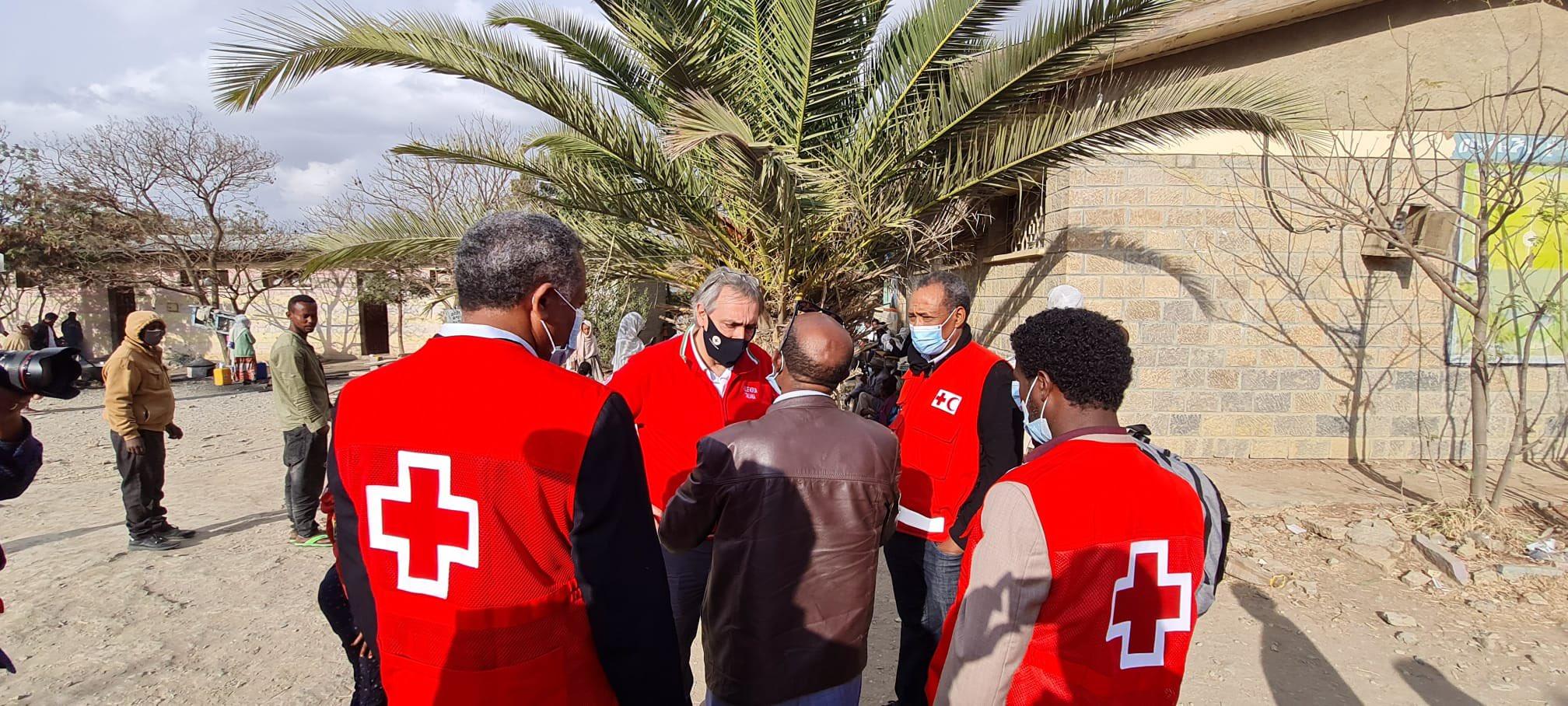
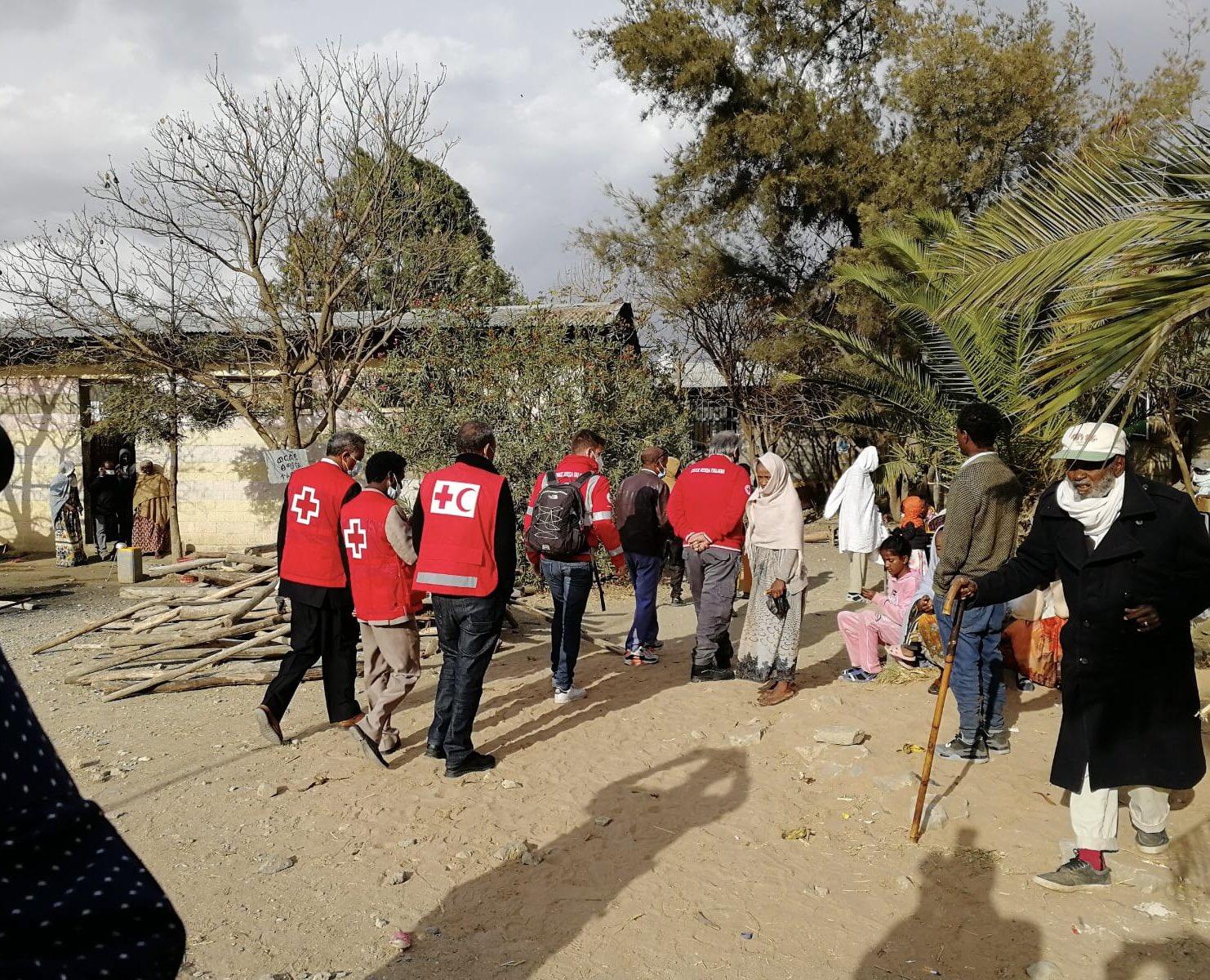 We must scale up humanitarian activities and we need safe and unhindered access everywhere.
We must scale up humanitarian activities and we need safe and unhindered access everywhere. 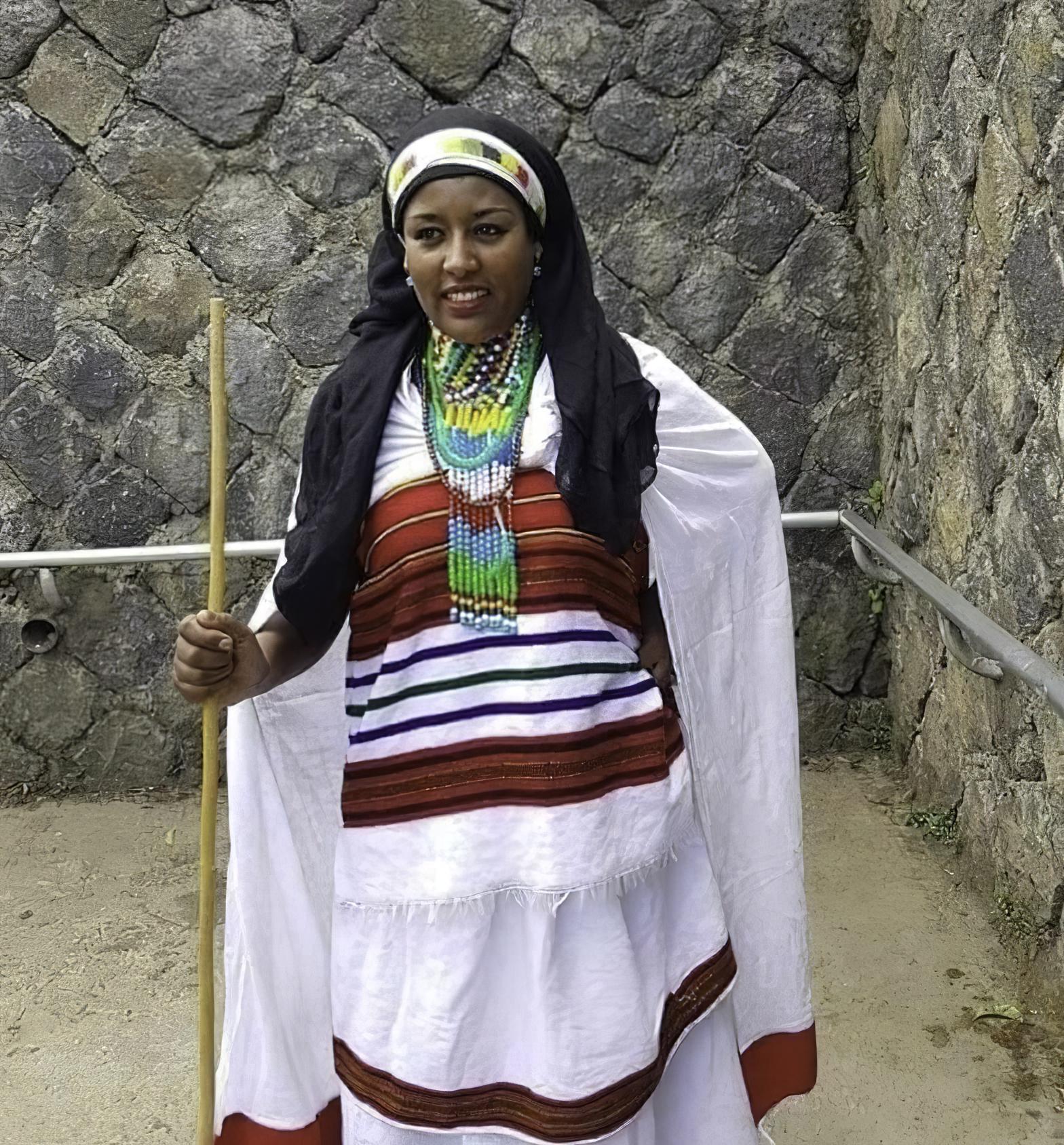 This is Meseret Dhaba, and was arrested this morning. Apparently, her crime was to express solidarity with Oromo political prisoners on hunger strike protesting unjust detention.
This is Meseret Dhaba, and was arrested this morning. Apparently, her crime was to express solidarity with Oromo political prisoners on hunger strike protesting unjust detention.
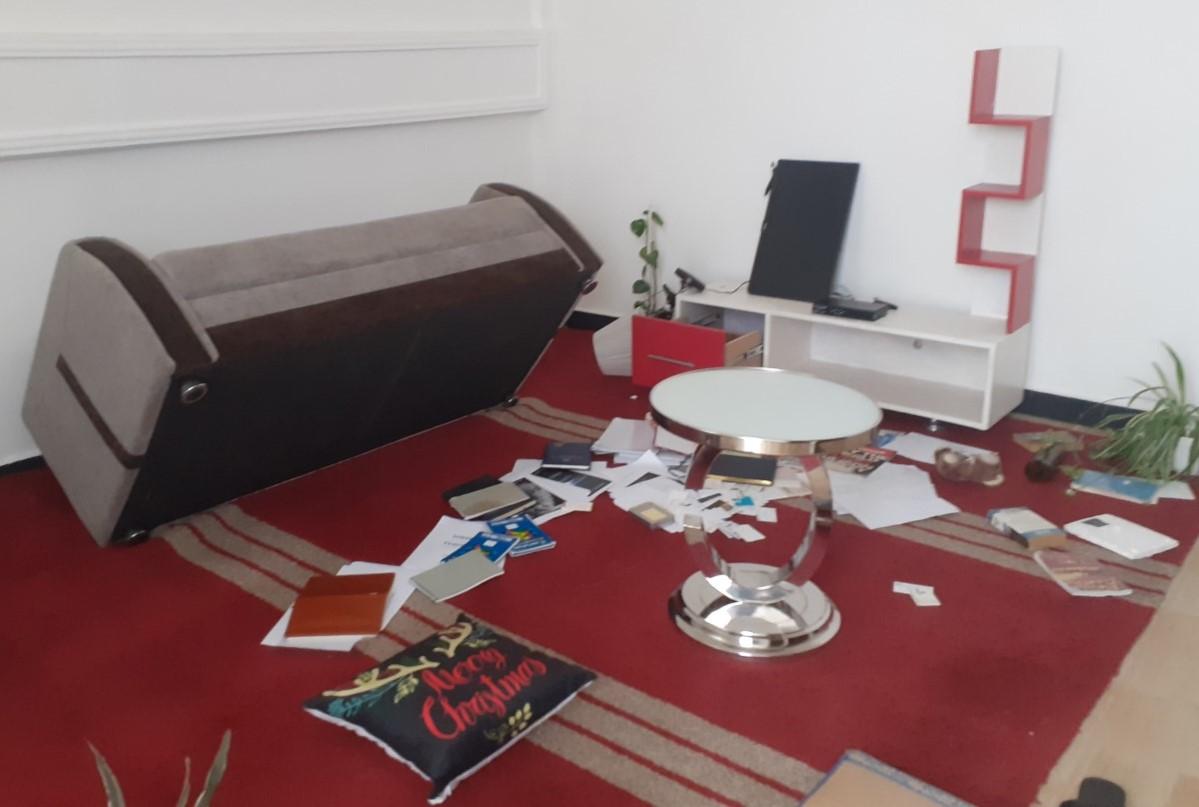 This is what it looked like after the three perpetrators had searched every closet and piece of furniture in the journalist Lucy Kassa’s apartment. They took with them a PC and pictures she was to use in her journalistic work.
This is what it looked like after the three perpetrators had searched every closet and piece of furniture in the journalist Lucy Kassa’s apartment. They took with them a PC and pictures she was to use in her journalistic work.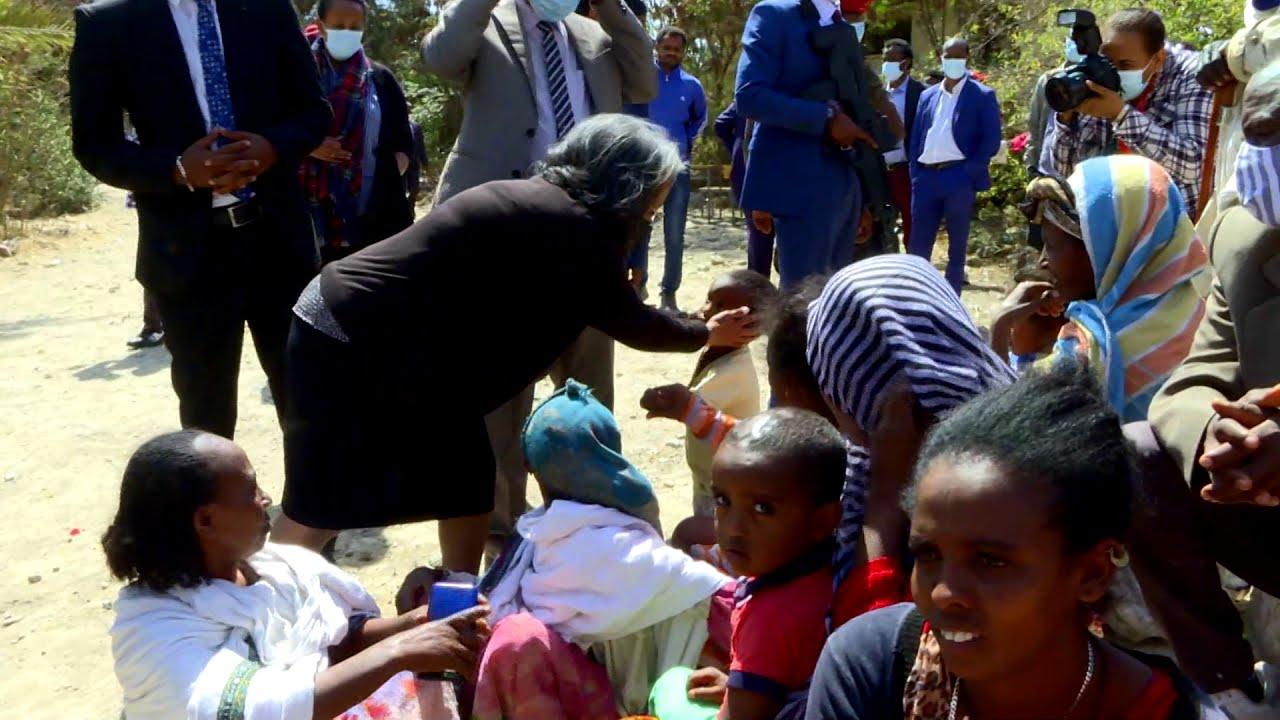
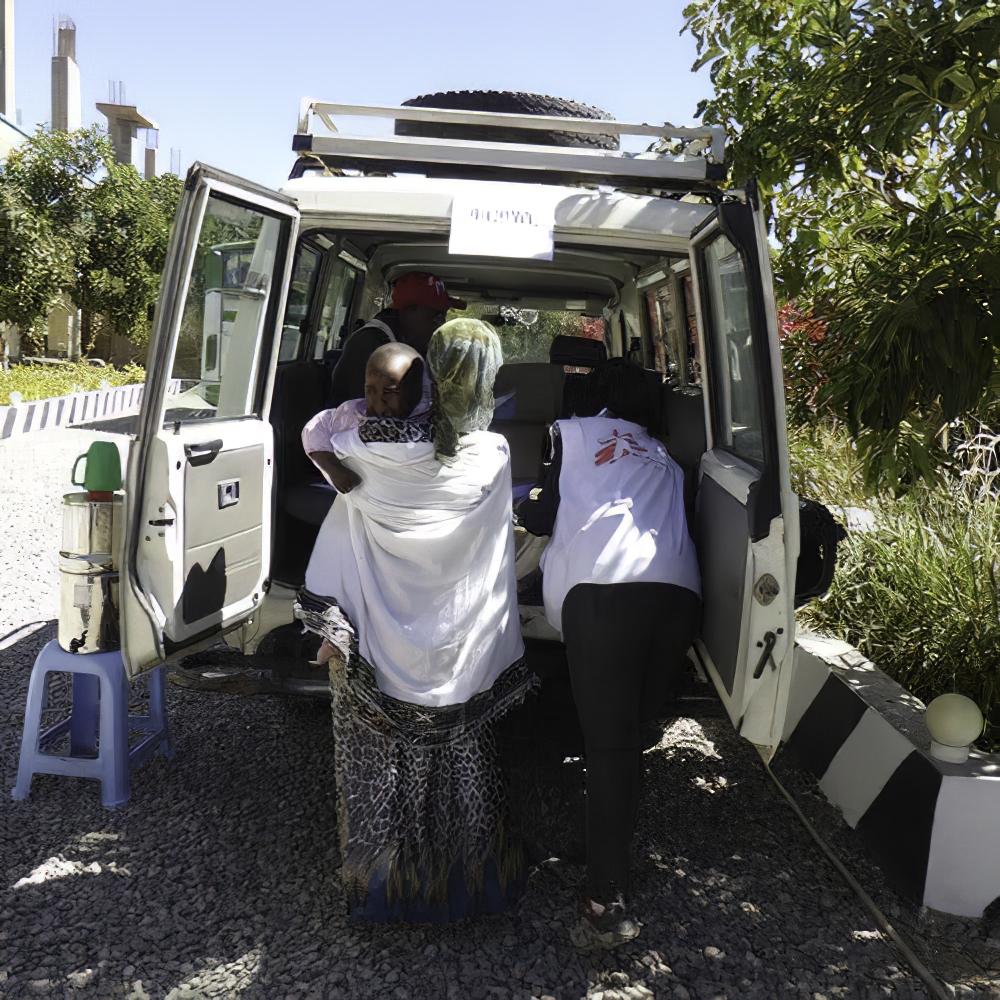 The local hospital was running at 30 to 40 per cent, with very little medication. Most significantly, there were almost no patients, which is always a very bad sign. We evaluated the hospital, with the idea of referring patients there as soon as possible from Adigrat, 120 kilometres to the north.
The local hospital was running at 30 to 40 per cent, with very little medication. Most significantly, there were almost no patients, which is always a very bad sign. We evaluated the hospital, with the idea of referring patients there as soon as possible from Adigrat, 120 kilometres to the north.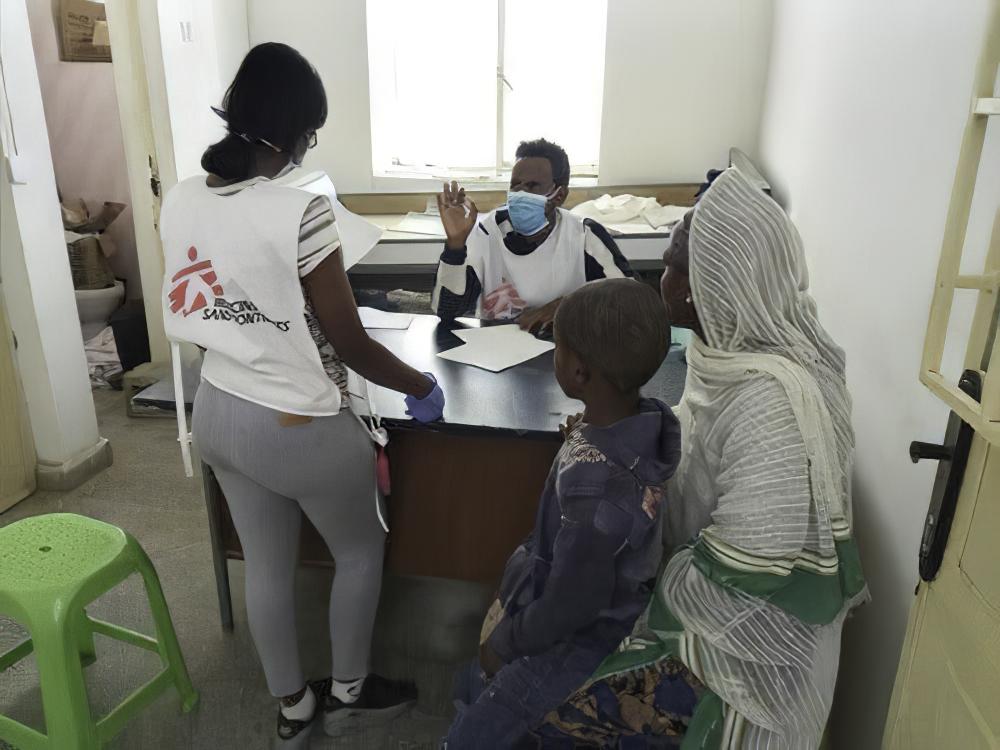 An MSF nurse and a translator prepare a donation of medical materials in Megab, south-west of Adigrat town, in the Tigray region of northern Ethiopia.
An MSF nurse and a translator prepare a donation of medical materials in Megab, south-west of Adigrat town, in the Tigray region of northern Ethiopia.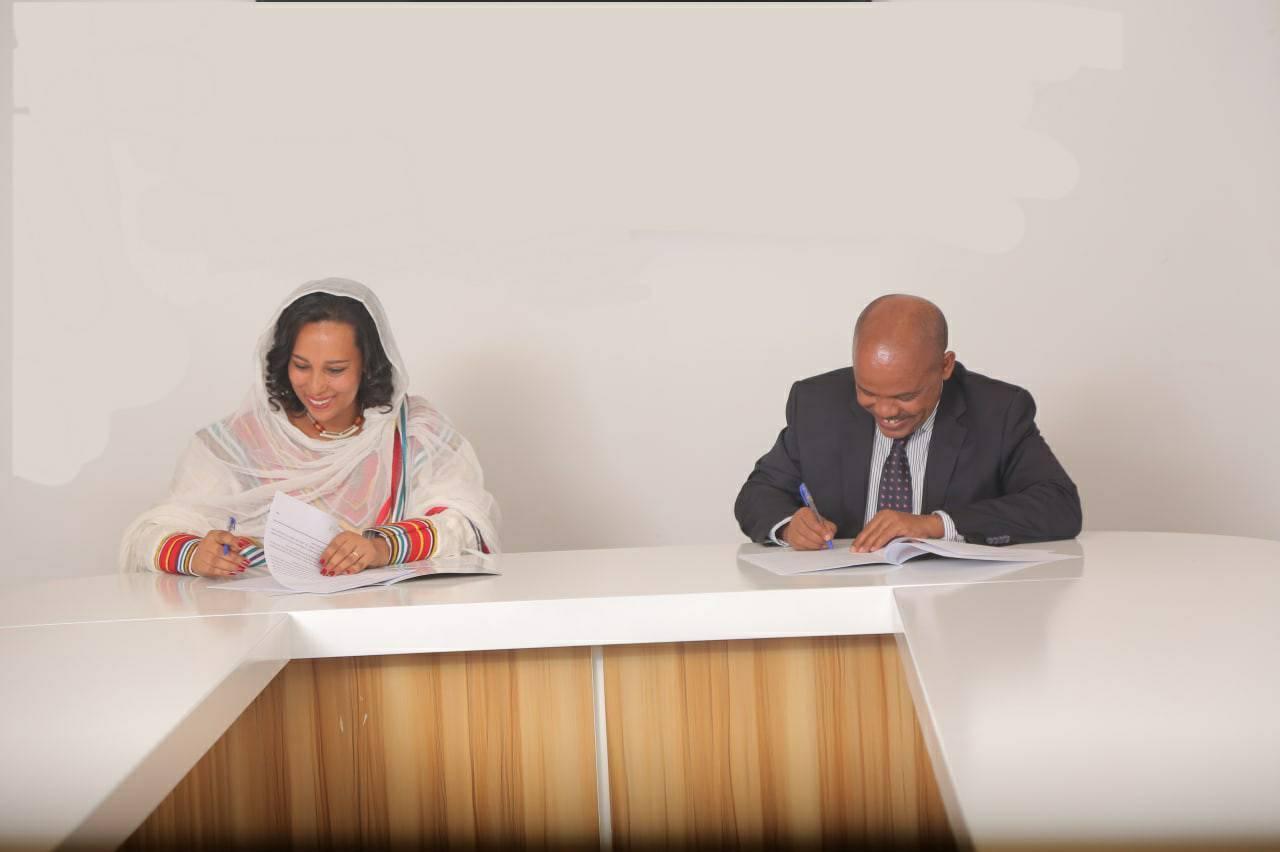
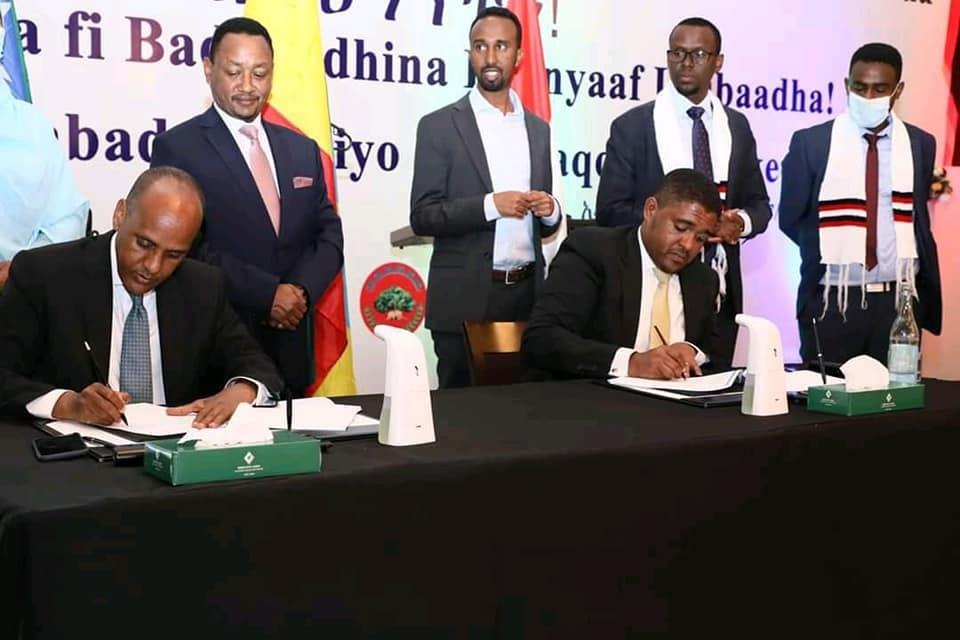
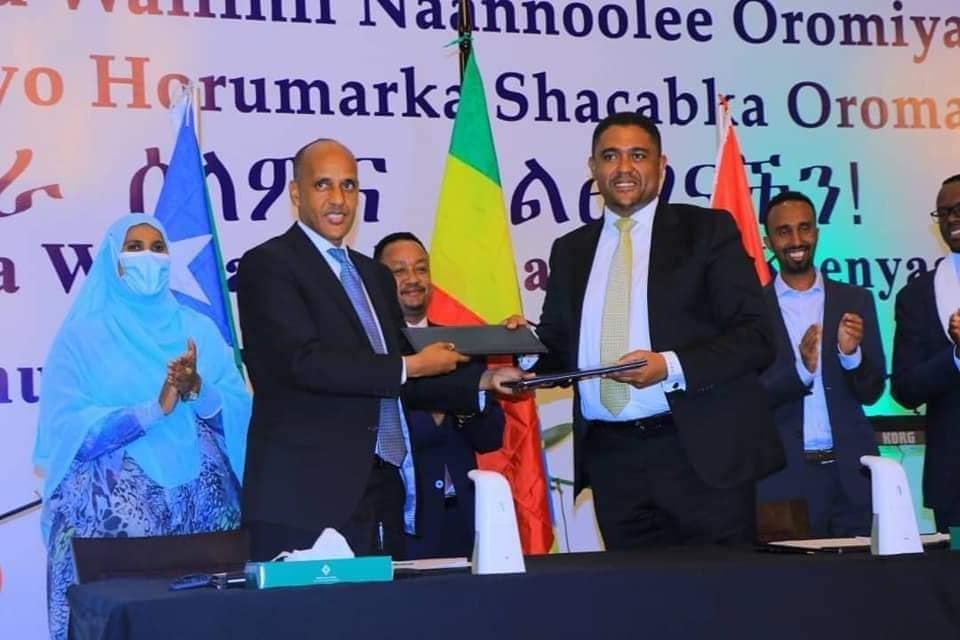
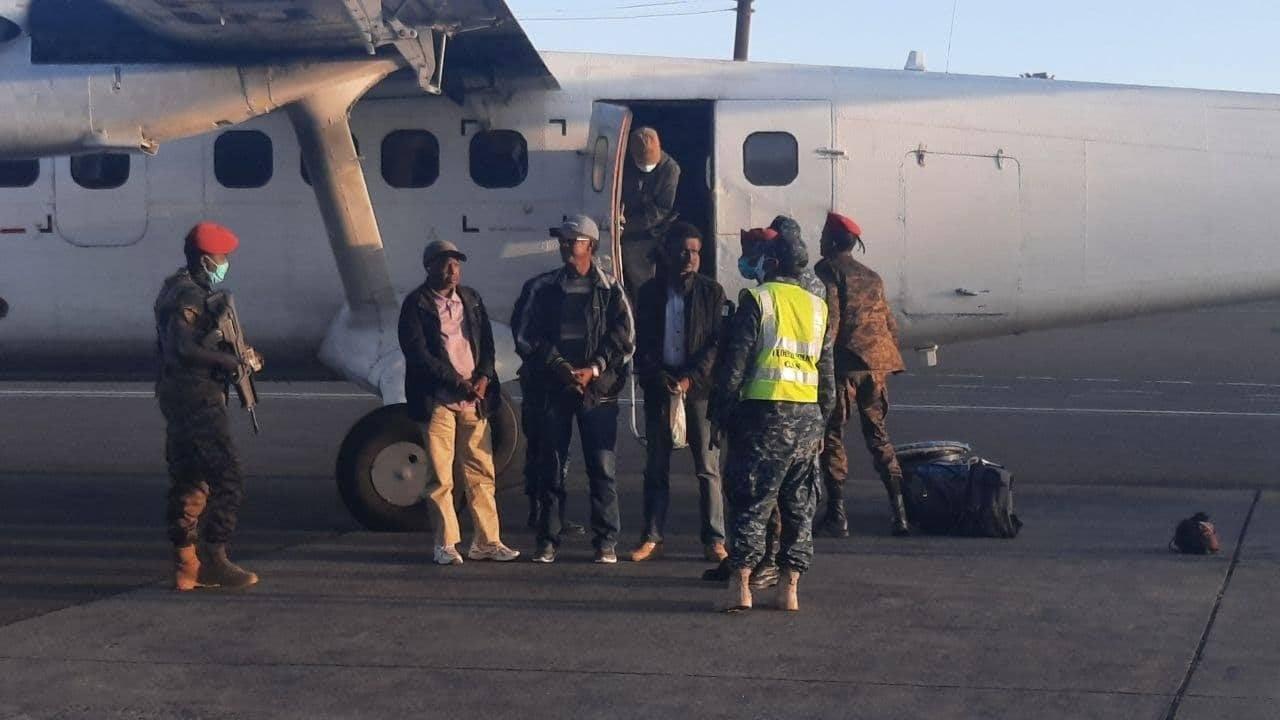
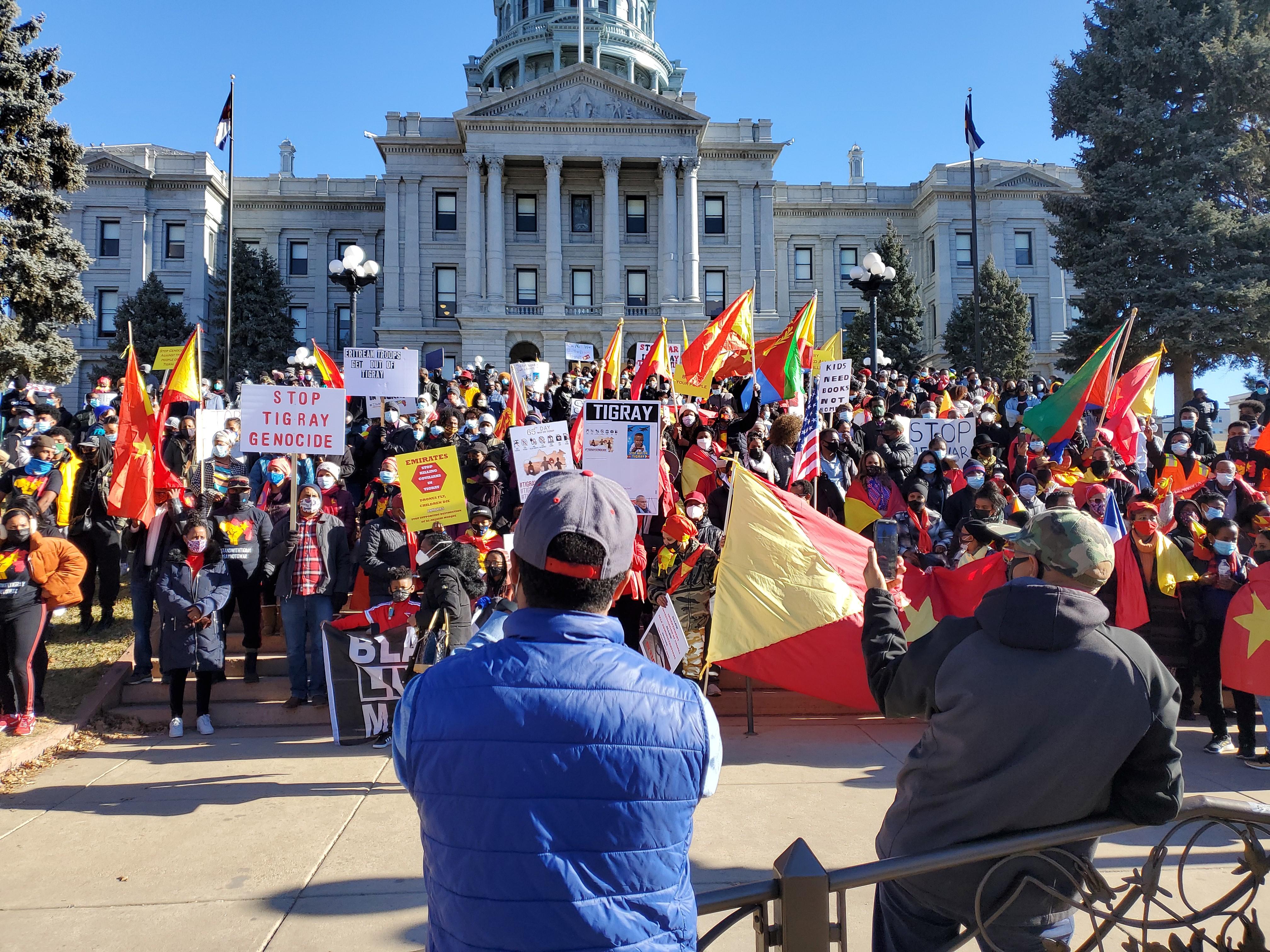 ዓለም ለኽ ሰላማዊ ሰልፍ ትግራይ ብድሙቕ ኩነታት ኣብ መላእ ዓለም ተኻይዱ
ዓለም ለኽ ሰላማዊ ሰልፍ ትግራይ ብድሙቕ ኩነታት ኣብ መላእ ዓለም ተኻይዱ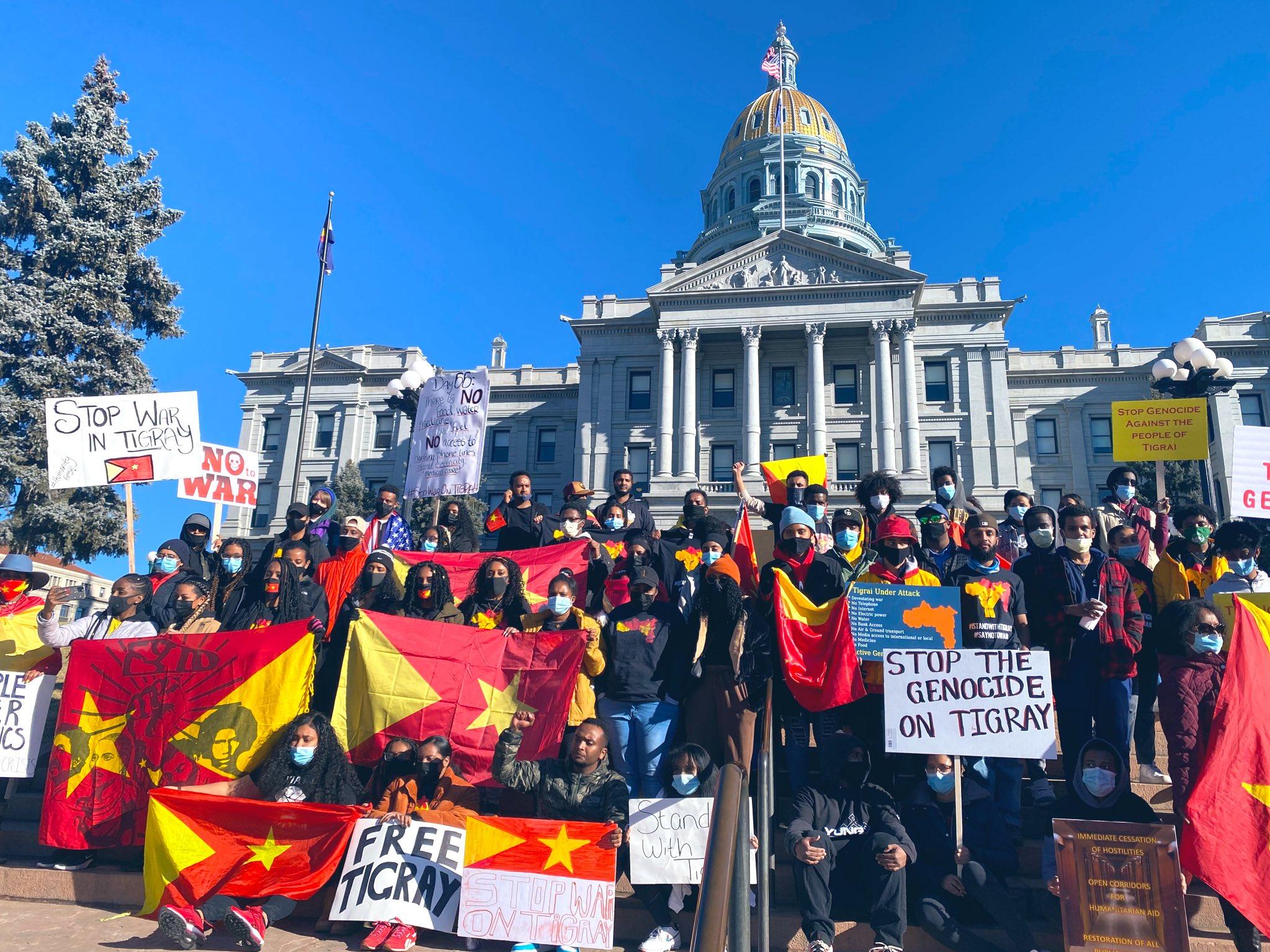
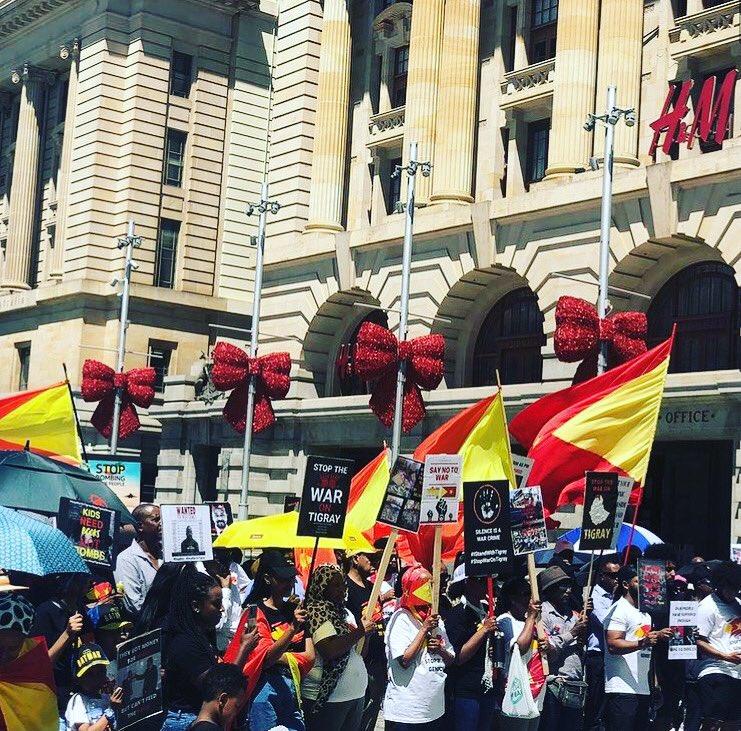
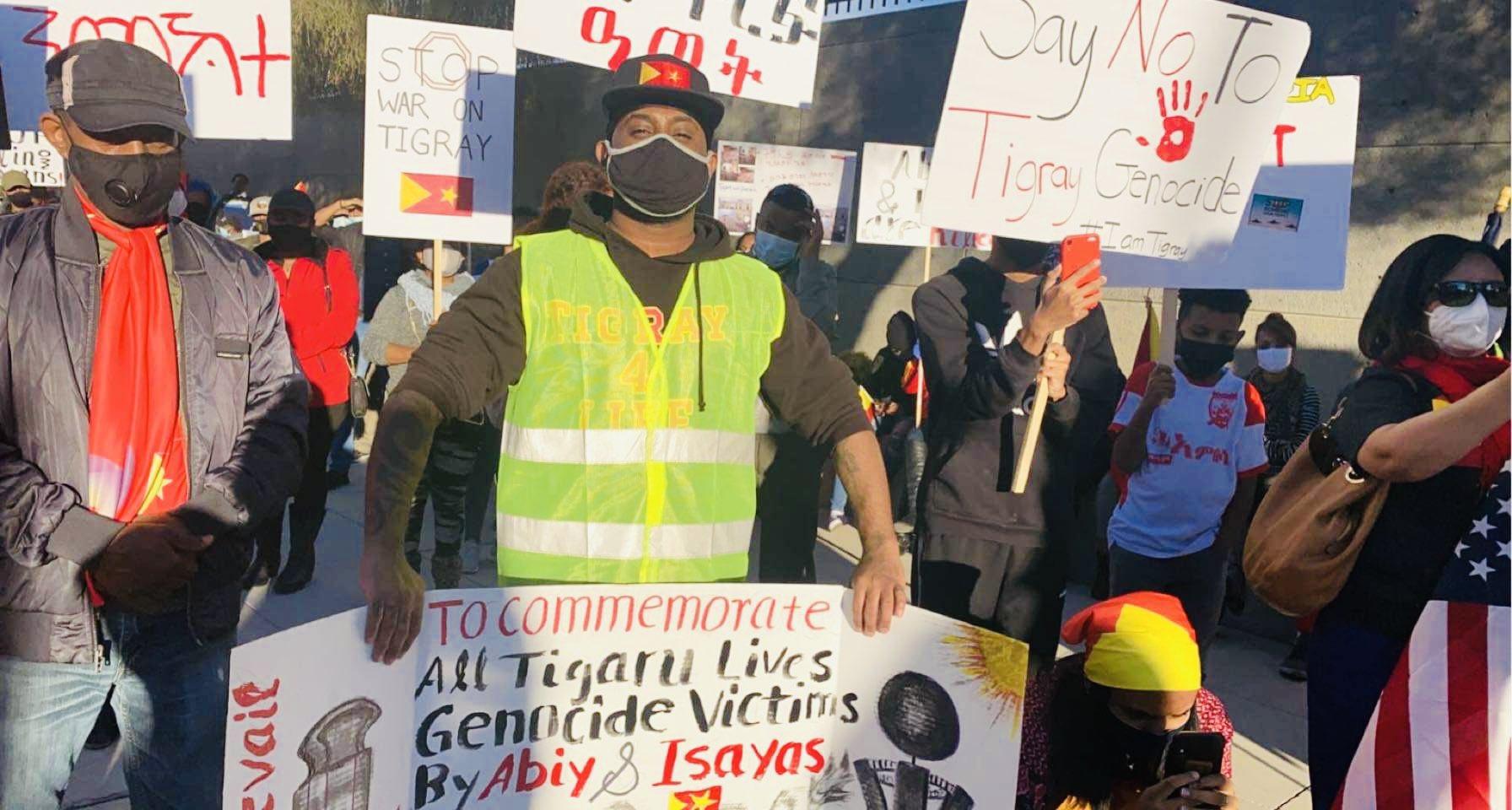
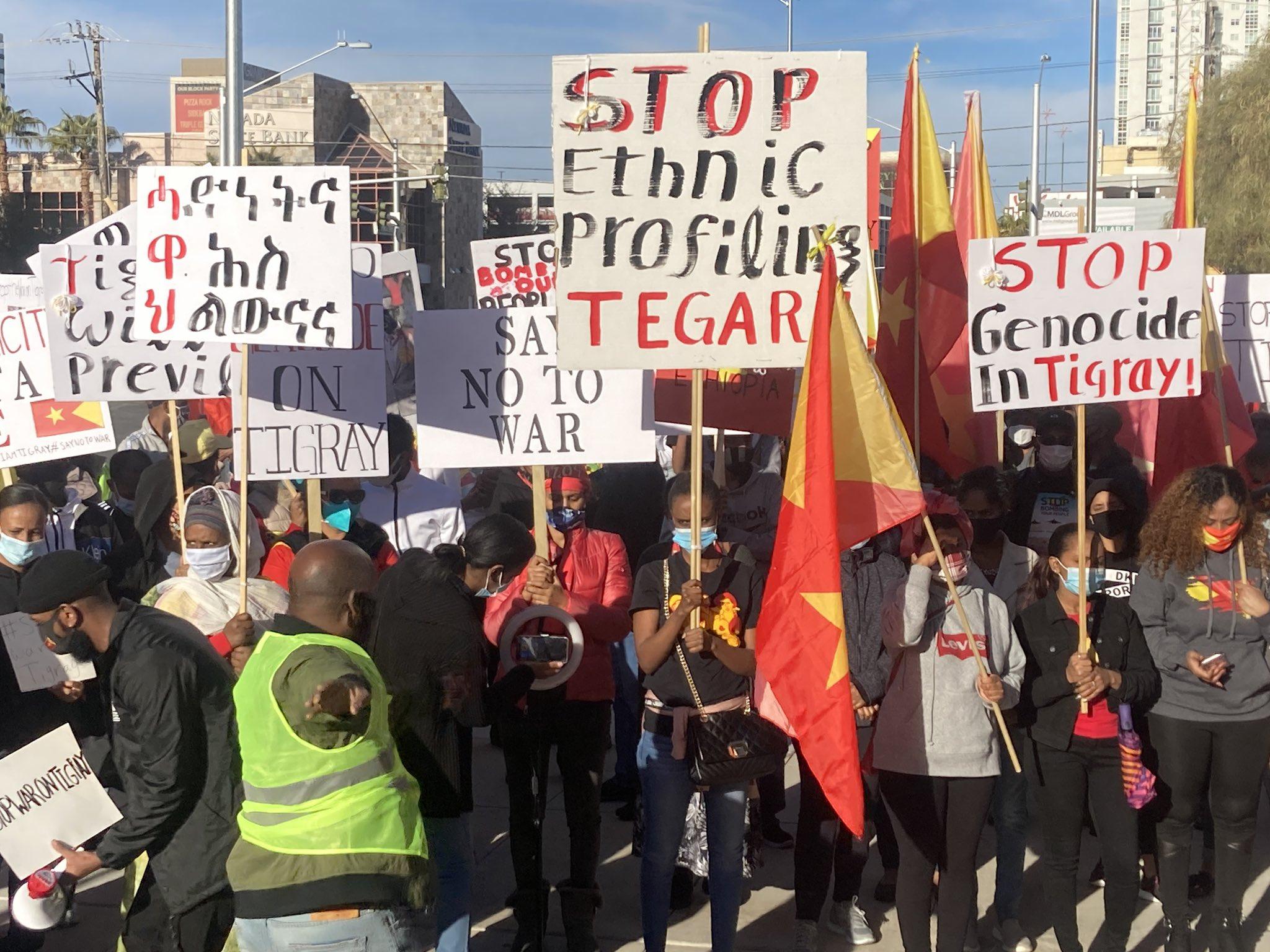
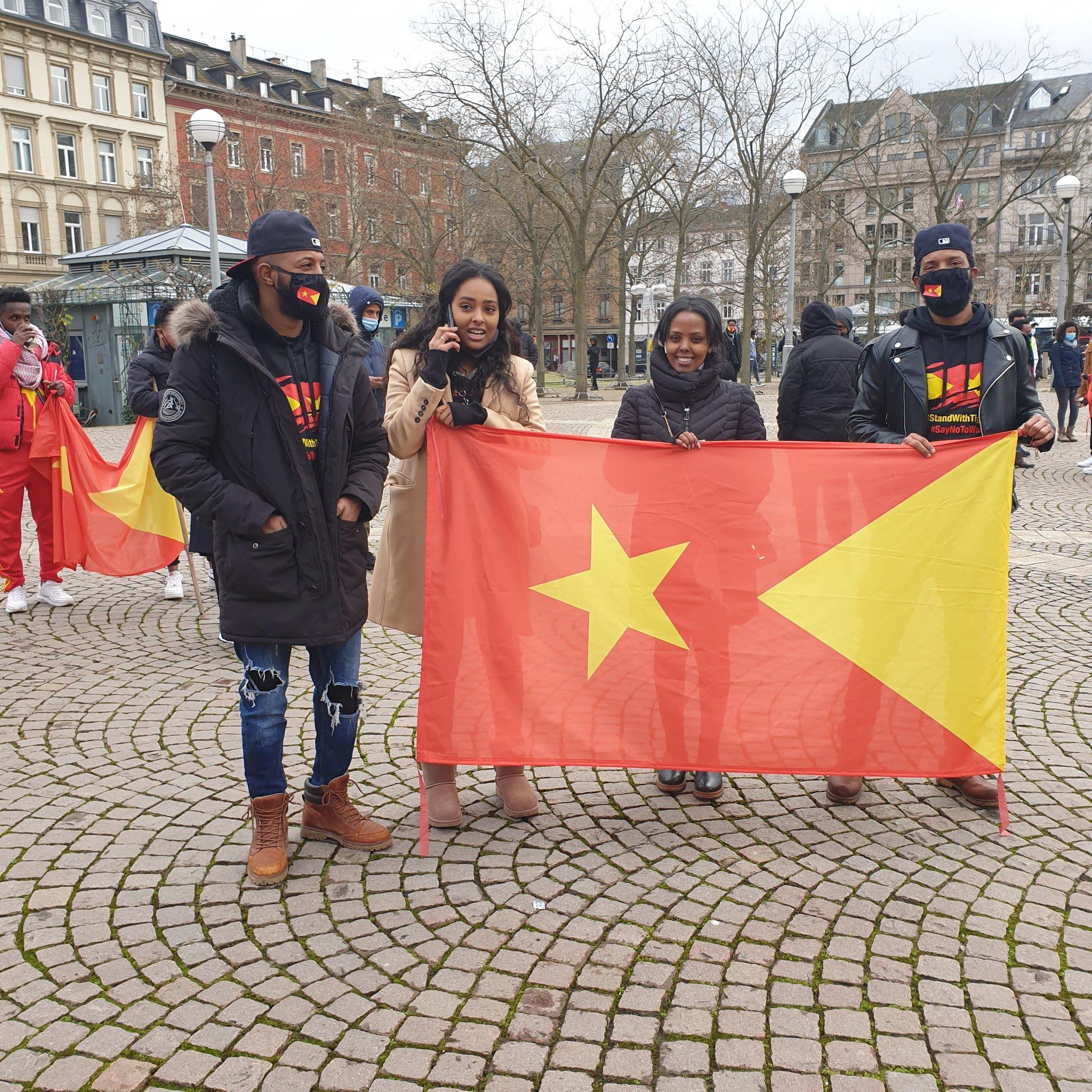
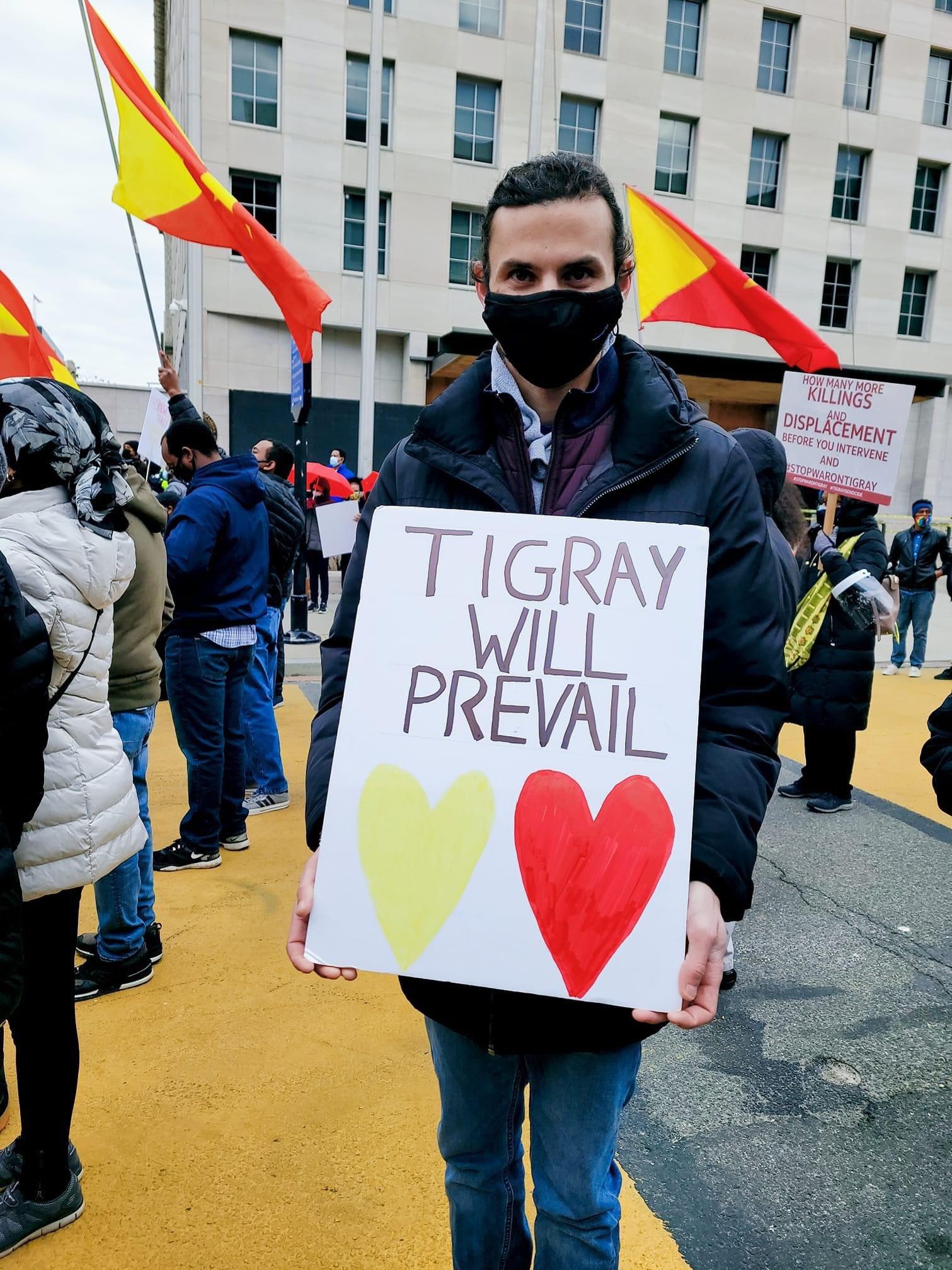 I stand with Tigray! Stop War On Tigray! Stop Tigray Genocide! Las Vegas
I stand with Tigray! Stop War On Tigray! Stop Tigray Genocide! Las Vegas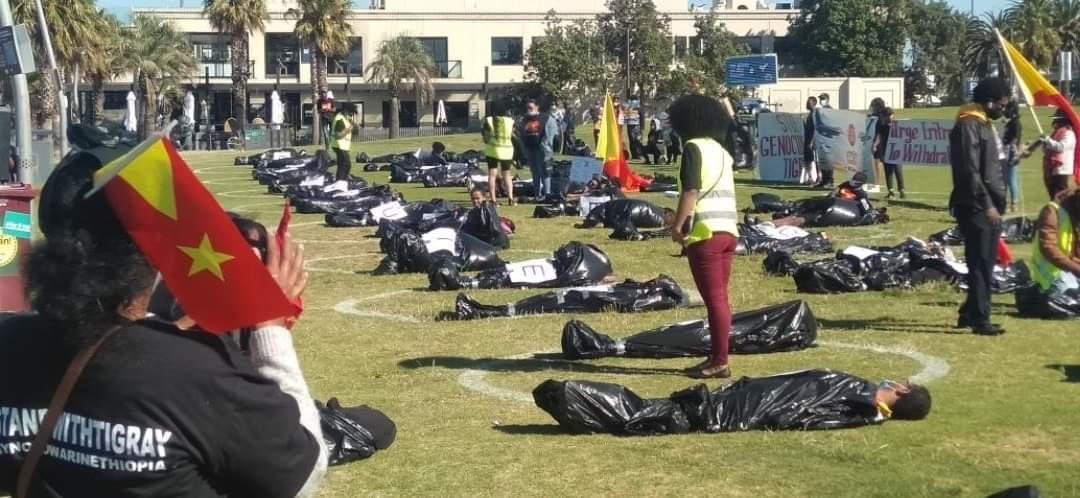 Tigray was already vulnerable to famine due to the desert locust invasion and now approximately 5 million Tegaru are on the verge of experiencing man-made famine due to Abiy Ahmed Ali
Tigray was already vulnerable to famine due to the desert locust invasion and now approximately 5 million Tegaru are on the verge of experiencing man-made famine due to Abiy Ahmed Ali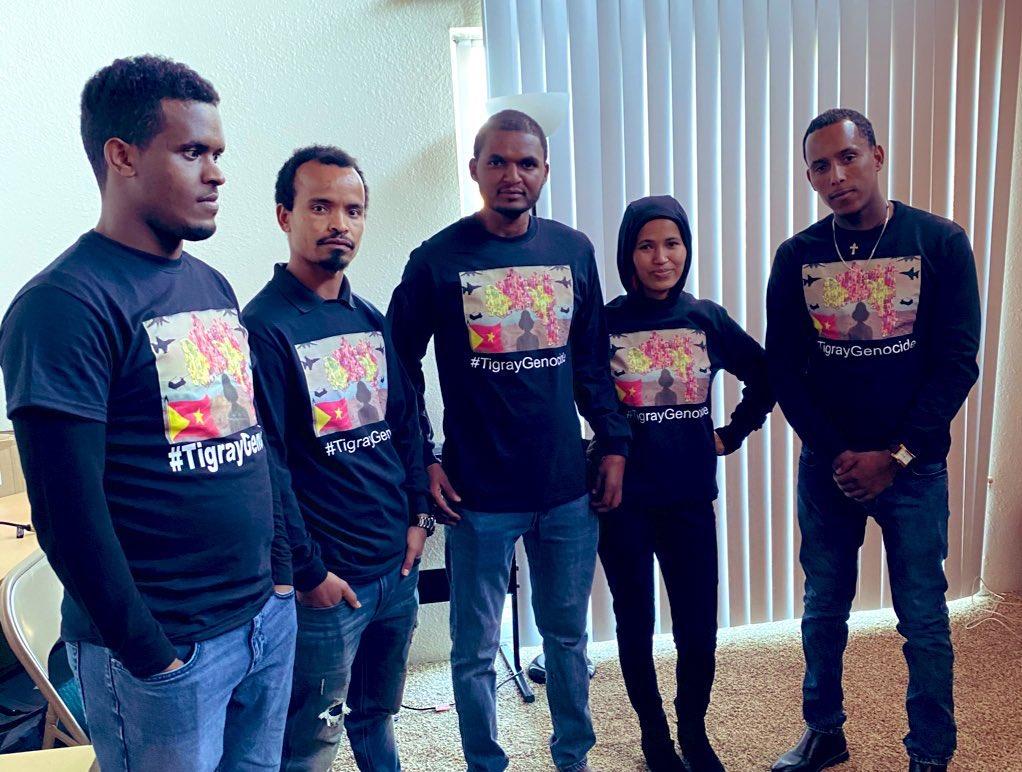
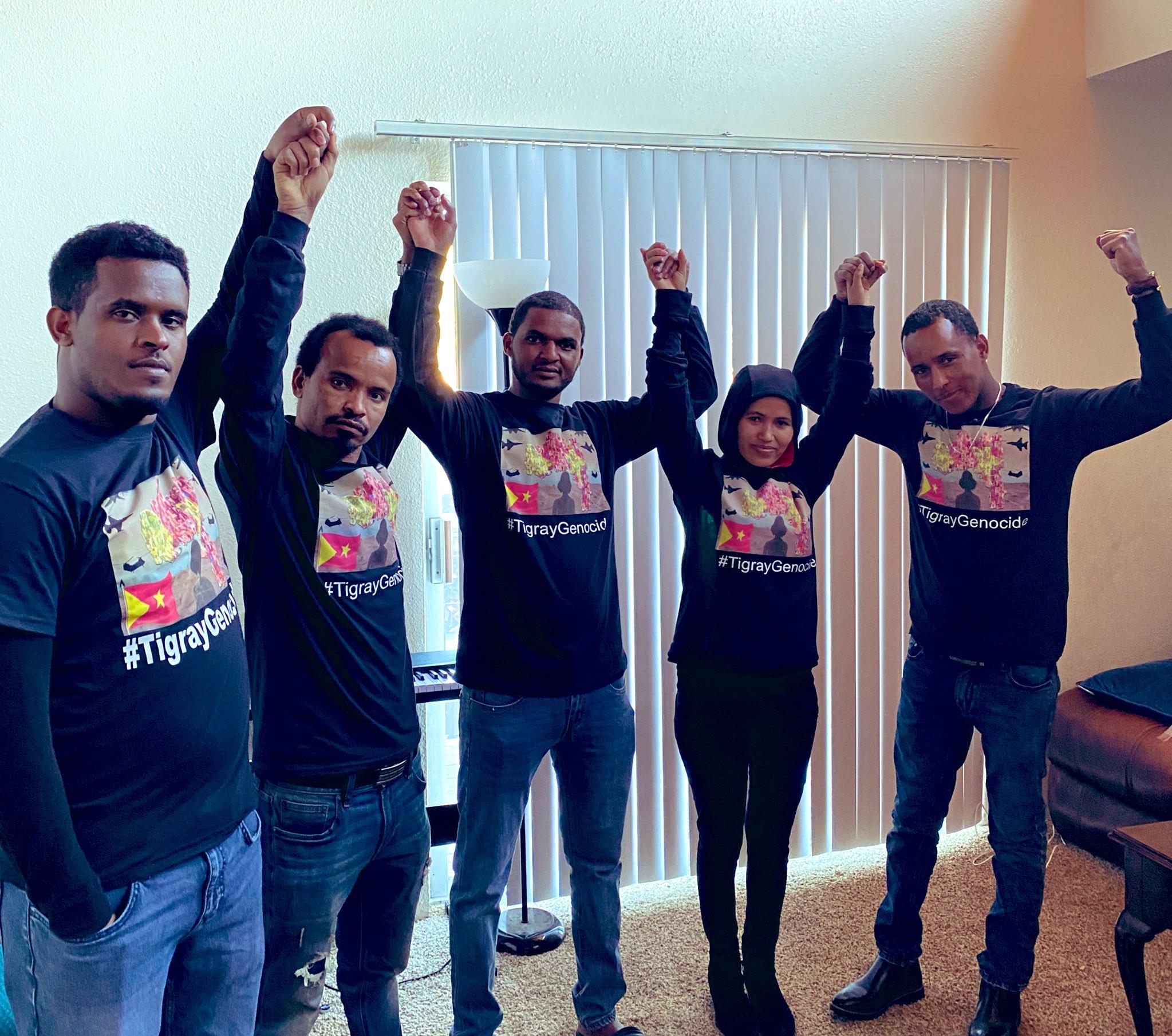
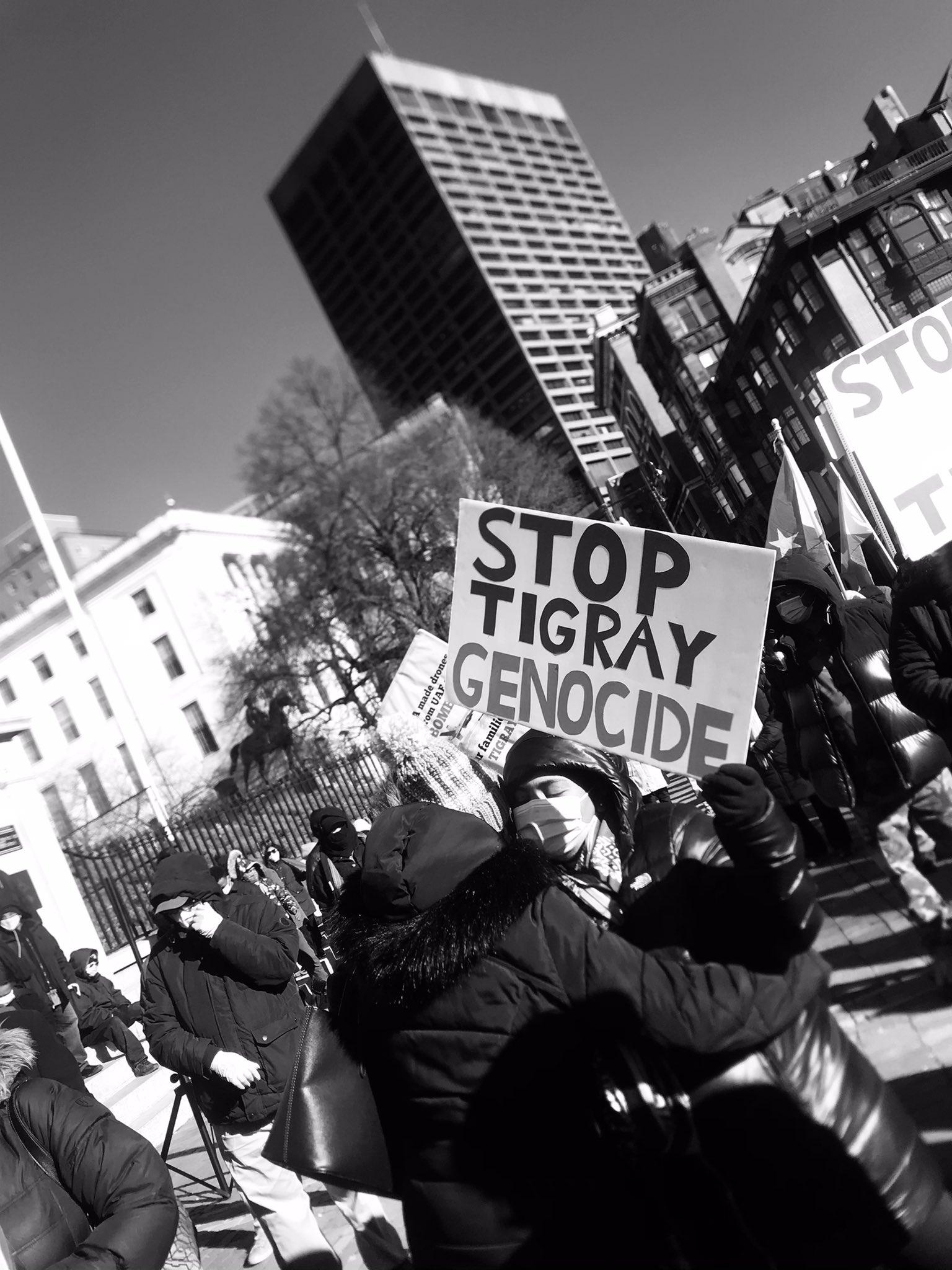 Protests happening through out the world. Justice for Tigray.
Protests happening through out the world. Justice for Tigray.